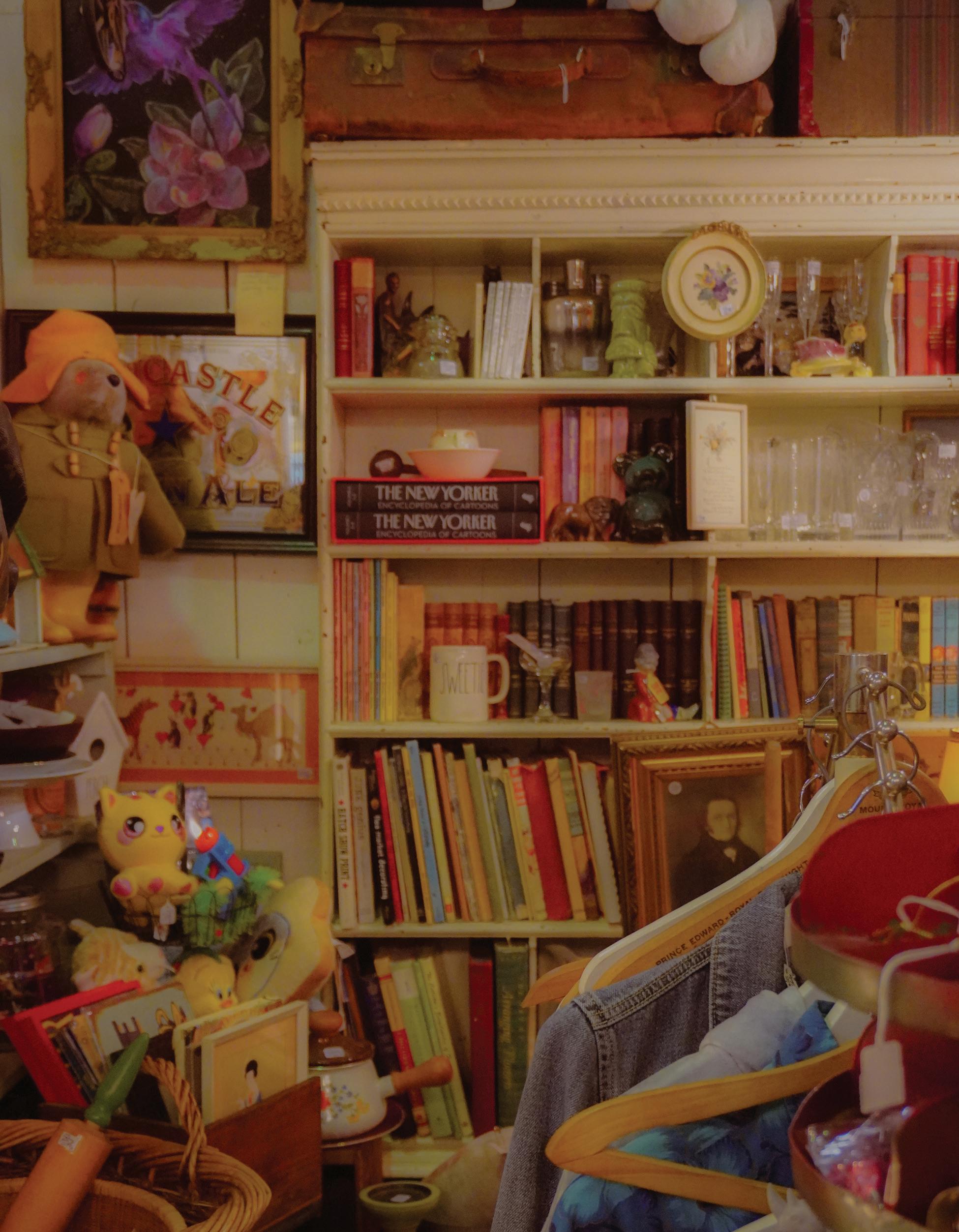






















Dear Reader,
Memento is commonly thought of in relation to its synonyms, such as souvenir, memorial and monument. Likewise, it is also attributed to the idea of remembrance, as the Latin verb meminisse means “to remember.” However, because memento is the verb in its imperative form, the theme of this issue does not simply ask you to remember—rather, it commands you to.
We partake in remembrance when we pin a red poppy to our jacket, give a eulogy at a funeral or put pictures in a scrapbook. Memento looks like wedding rings, Bible verses or trinkets, like the ones you can search for in this issue’s I Spy page.
In this issue’s Sports section, managing editor Cath de la Rambelje invites some of the TWU Spartans to share their love for their sport in “Spartans: Why We Play,” while the subject of our artist spotlight, Hanna Berg, recalls how lessons learned from 15 years in the military have influenced her art.
Memento is in the driftwood rafts and
Mars’ Hill is a student publication of Trinity Western University located on the traditional ancestral territory of the Stó:lō people. Floated with funds raised by the Student Association, Mars’ Hill seeks to be a professional and relevant student publication, reflecting and challenging the TWU community, while intentionally addressing local, national and international issues.
The mission of Mars’ Hill, as the official student magazine of Trinity Western University, is to inform and entertain its readers, cultivate awareness of issues concerning the TWU community and provide a forum for purposeful, constructive discussion among its members in accordance with the Community Covenant, Statement of Faith and Core Values of the university.

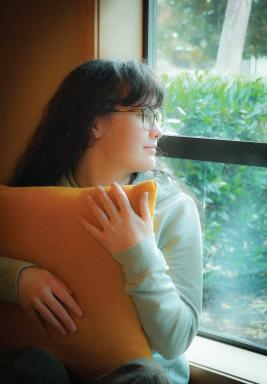
leaves of Garry oak trees that contributor Sophie Agbonkhese reflects on in her poem “Everything,” and in staff writer Emma Helgason’s humorous article “Mementos and Meltdowns,” which highlights all of the reminders needed to get through the month of November, ranging from due dates to forum posts and everything in between.
I encourage you to remember all the people, places and events that have shaped who you are as you read this issue of Mars’ Hill . While we all have memories we would rather forget, or moments we cannot quite remember, no matter how hard we try, there is purpose in our ability to recall past experiences and let them inform how we behave in the future. Memento is how we honour the sacrifices made by those who served our country. It is how we know God keeps His promises, and ultimately, it is how we know that the best is yet to come.
Sincerely,

Mars’ Hill encourages submissions and Letters to the Editor. Mars’ Hill reserves the right to edit submissions for style, brevity, and compatibility with the Mission, the Statement of Faith, the Student Handbook and the Core Values of the University. Anonymous authorship of any material may be granted at the discretion of the Editor-in-Chief. Opinions expressed in Mars’ Hill belong to the individual authors and do not necessarily reflect those of the editorial board, Trinity Western University, its officials or its Student Association.
(Cameron Lebold)
Orion Snow
Parnika Trivedi
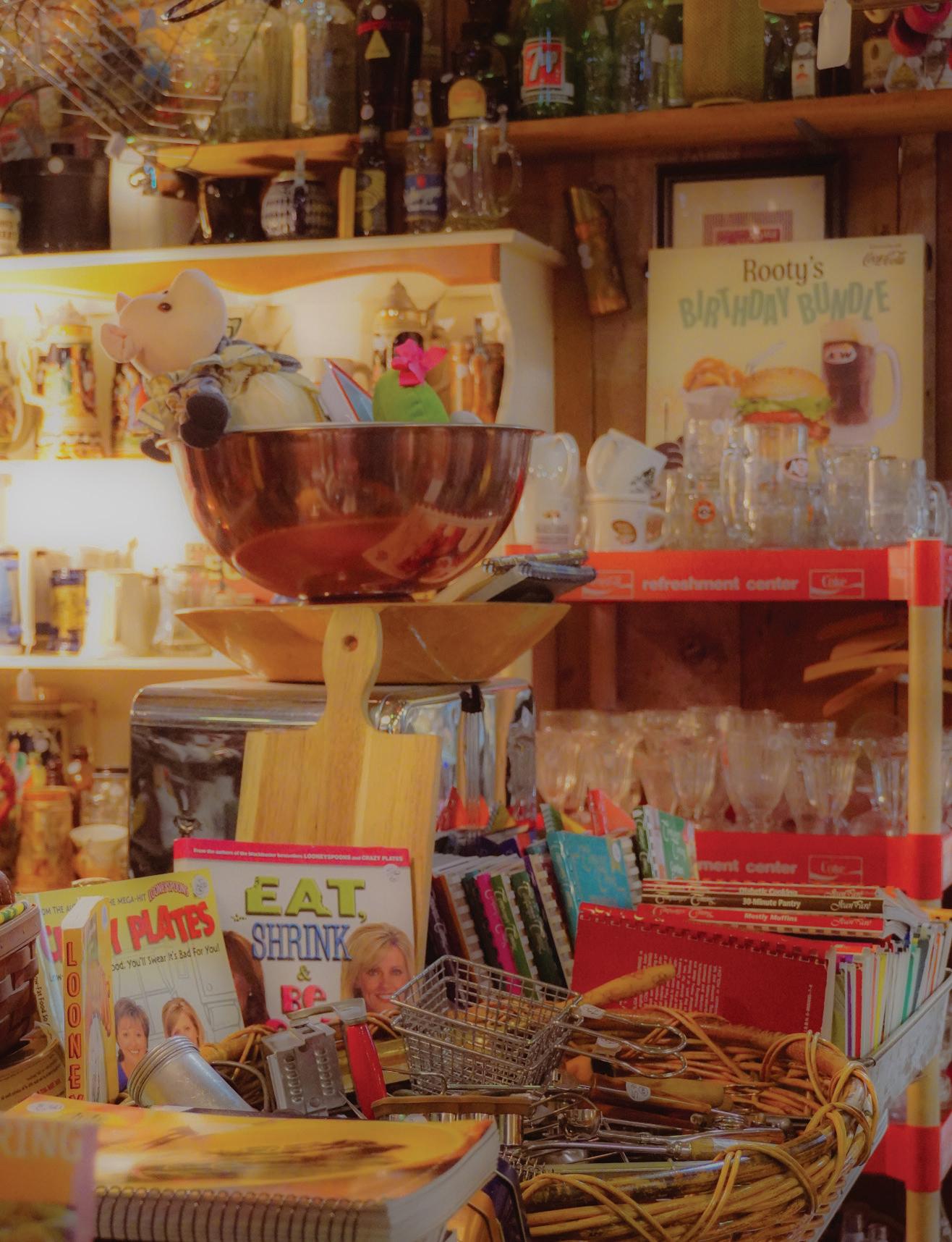



Too scared to ask out that hot girl from RELS class? Have a thought you’re dying to share? Did a professor say something strange or funny? Do you have some information that you want to get out to the student body? Whatever it is, the declassifieds are here for you.
Submit yours at www.marshillmagazine.com/declassifieds-section
I think my boyfriend is gonna propose soon.
IMPROV SHOW NOV 28 AT 7:07 P.M. IN DEVRIES AUDITORIUM!!!
To the guy who walks around in that witch hat and cape the entire month of October, respect.
Stream “the cost (given for us)” by HOMECOMING. I hate lip piercings. It’s a Phoebe Bridgers autumn.
Walking to Marlie is probably the hardest and longest walk I have ever had to suffer.
I like pie.
Ah (bleep), here we go again.
Oh friend of mine, with shears in hand, You’re leaving me for promised land. The halls of hair will steal your days, And I will cry and cry and cry and cry and cry and cry.
Can we normalize holding the door open for people more often?
Yeyeyeyeyeyeyeyeyeyeye



A group of university students was assigned a crapload of homework. This is how their will to continue shuts down.
Forgive me if I hesitate.
This university should sell bubble tea. Can someone please tell me why meal plans cost six million billion trillion dollars.
Would you rather drive a purple cybertruck or a zebra striped smart car?
I LOVE Professor Morrissey.
I love pickles. Blink twice if you think I should drop out. My earlobes really hurt because when I was walking to the supermarket, a cough drop fell in my button. Now I’m allergic to medicine cabinets.
Since the moment I first laid eyes on you, I knew you were meant to be mine. How can I live if not with you as my better half? I love you, now and forever. You know who you are, fulfill what was meant to be.
Why are all the CAs the most attractive people alive for some reason?
Sometimes she is sweet. Sometimes she is sour. I like her textured skin and the way she makes me feel. This is not a girl but a pickle.
Andrew Garfield is the best all around Spiderman and I don’t care what you have to say.
Can’t I just be friends with people of the opposite gender on this campus. PLEASE You know what they say, don’t hold your basket too high or all your eggs will fall out!!!
Mars’ Hill reserves the right to edit or reject submissions based on content and/or length. A printed submission does not reflect an endorsement of any kind, nor does it reflect the opinions of Mars’ Hill or its staff, the student association or Trinity Western University.
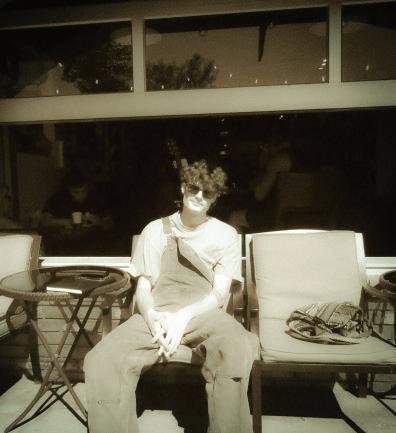
What is your name? Cameron Lebold.
What is your major? English and creative writing.
Where are you from? Langley.
Why do you write for Mars’ Hill? I write for Mars’ Hill because I have something worth sharing.
What is your favourite article you’ve written for Mars’ Hill and why is it important? My favourite article I have written for Mars’ Hill is “Cami Lavender’s Advice Corner.” I
think it is important because Cami Lavender can make someone feel seen. Some may read her advice and feel that it resonates with them. They now know they are not alone and can maybe find comfort in her words as well.
Who is your favourite (fictional) character and why?
Hobbes from Calvin and Hobbes.

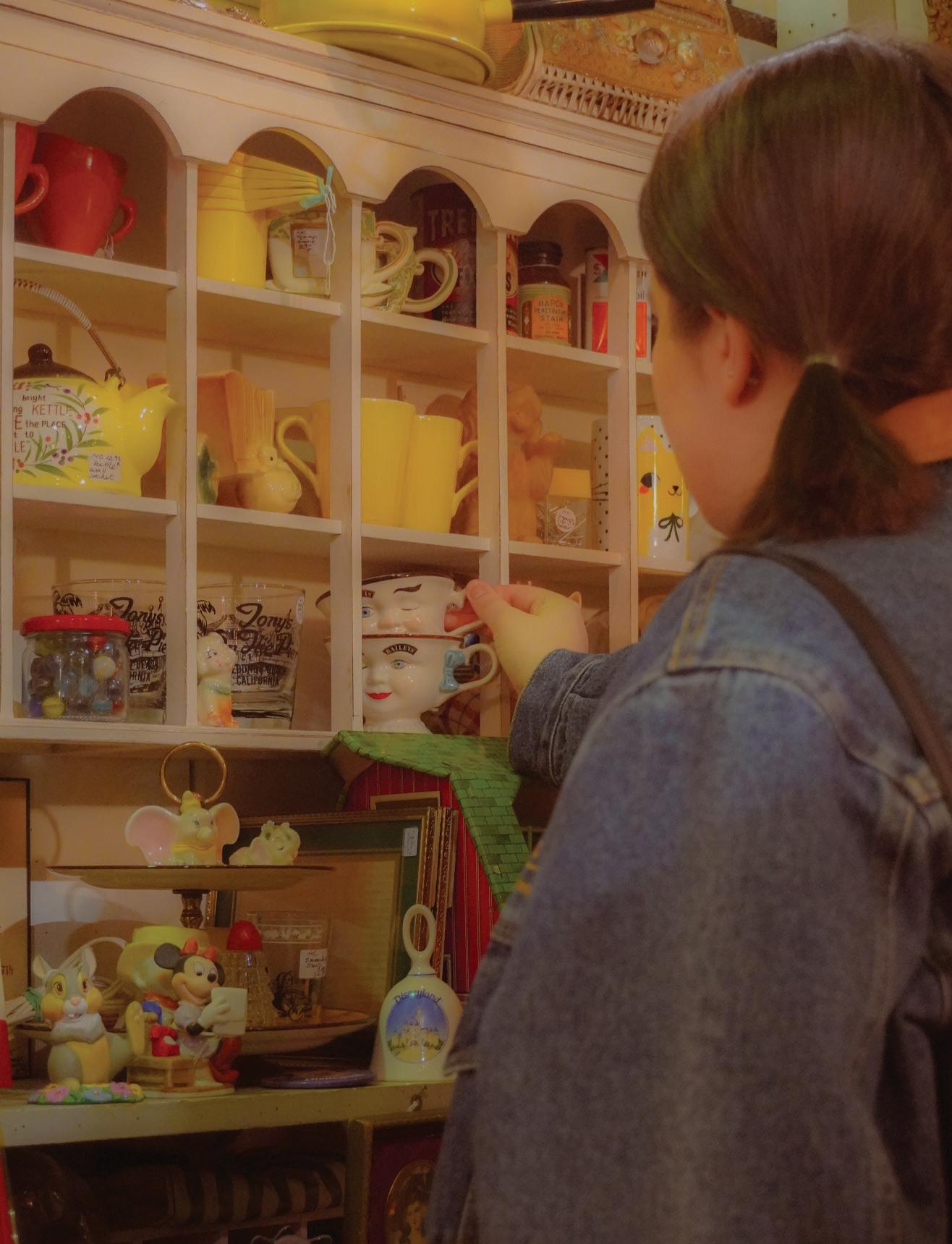
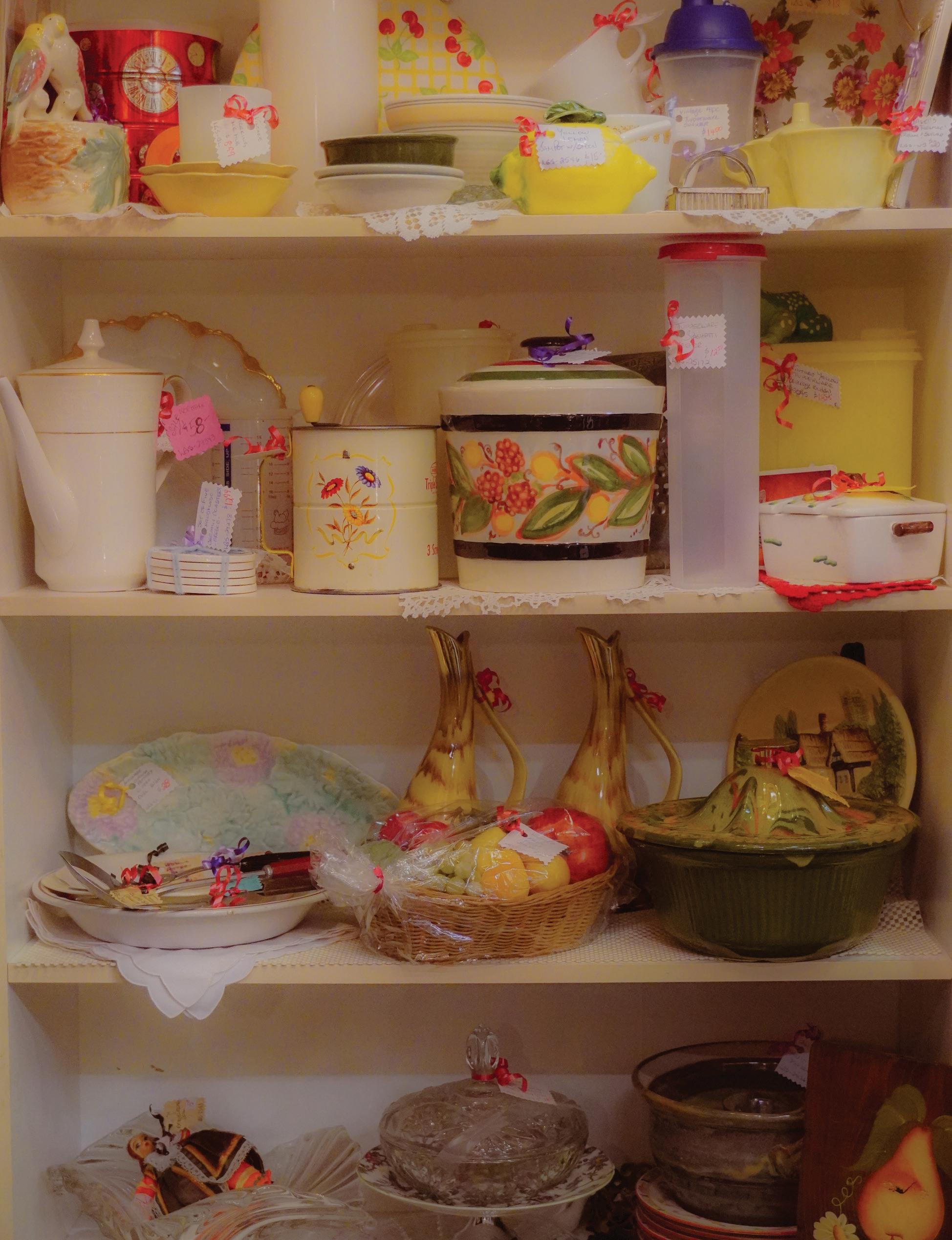
Memento a curated playlist
Blessings — Hollow Coves
SHOW AND TELL — Benjamin Booker
Vienna (In Memoriam) — The Army, The Navy
Never Gonna Be Alone (feat. Lizzy McAlpine & John Mayer) — Jacob Collier
Let’s Go Swimming — Palace
Back to the Old House - 2011 Remaster — The Smiths
Do You Remember — Jack Johnson
Cool About It — boygenius, Julien Baker, Lucy Dacus, Phoebe Bridgers

Emma Helgason
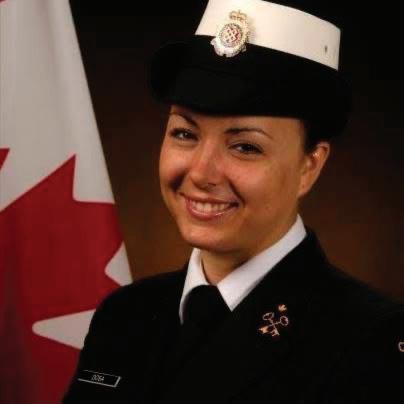
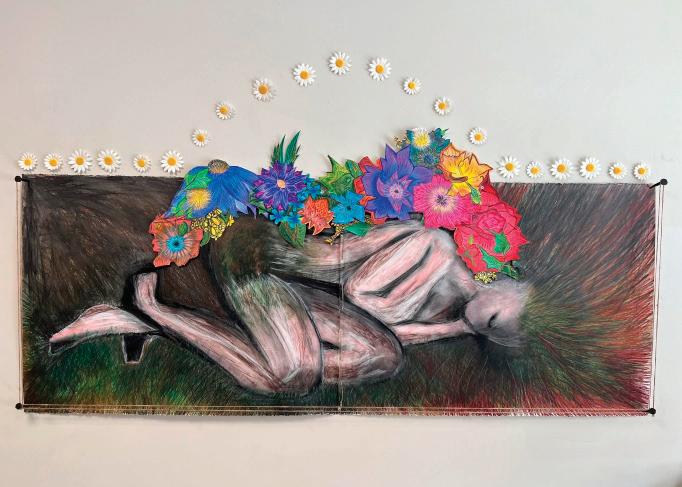

When Hanna Berg told me she was not afraid to take risks, I assumed she was talking about her art. But Hanna brings a whole new meaning to taking creative risks—after serving 15 years in the military and seven years in the classroom, she has truly seen it all. Returning to school after years away can be daunting, but Hanna’s story is a powerful testament to what following your heart can do. So, whether she is hanging out of helicopters, aboard a warship, in the classroom as an educator or in Russell Leng’s painting class, you will find Hanna fearlessly doing what she loves.
MH: Please introduce yourself and tell us about your journey as an artist.
HB: My name is Hanna Berg. I am currently majoring in art and design, and I am in my third year. I have always had this deep-seated feeling that being in a creative field is essential for me. I often felt suffocated in my previous jobs, which is why I have jumped careers so many times. For example, I have my Early Childhood Education (ECE) qualification and am a certified preschool teacher with a Montessori background. Interestingly, I was also in the military.
MH: You really are taking the term “living all nine lives” seriously! What was your role in the military?
HB: All nine lives, indeed! I spent 15 years in the military. So, when I say I have jumped careers, you have no idea. I spent 10 years in the army as an infantry soldier, which you can imagine is like what you see in war movies.
“I was one of the foot soldiers—the ones on the ground in the thick of it. I was trained for operations, including rappelling from helicopters and handling a range of weapons, from handguns and machine guns to rocket launchers and grenades.”
After my time in the army, I transitioned to the navy, where I served for five years. I was stationed on a frigate based in Halifax. That is where my son, Mason, was born. On board, I was on the boarding party as the advanced first aider; our job was to search ships on the Atlantic for illegal weapons, drugs and aliens. Although I never deployed overseas with the navy, I had the opportunity to sail along the North American coast, from Newfoundland to Key West, Florida.
MH: As you create now, do you find your military background influencing your art?
HB: My professors are often curious about this, too. However, I often find it hard to pinpoint that influence directly. When I think about it, I do not see specific elements of my military experience coming through in my work. What I do recognize is that my time in the military has instilled in me a strong sense of risk-taking. I am not timid about trying new things in my art. Even when I feel like I am done or ready to give up, I still strive to elevate my work. It is like there is something in me where I am not afraid to fail or to push myself.
MH: It is clear that your military skills have influenced your art abilities, but what made you want to take on an art degree?
HB: Even before I had any actual training, I always found myself drawn to making spaces beautiful—like, decorating, staging, all that interior design kind of thing. Even when I was in the military, on the ship, I was the one who would organize the mess. The mess was the common area, and I would decorate it by putting up photo collages and graffiti walls—just bringing a creative vibe wherever I could. It always made me happy. And then, when I was working with kids, I realized how much art could help them. Even just doing art activities together made such a difference for anxious students. I kind of fell into this unofficial art therapy and saw how powerful it was—not just for them, but for me too.
MH: Is anyone else in your family creative?
HB: My grandfather was actually a painter, and my dad is a photographer. On my mom’s side, my other grandfather was an artist as well, focusing more on craftsmanship and making things. So perhaps this artistic inclination is hereditary—I am not entirely sure, but I have heard that before. Of course, both parents always take credit for any talent, right?
MH: What does your family think about this career change?
HB: My parents are incredibly supportive. It has been
quite financially challenging to make this happen, especially since I am a homeowner and a full-time single mom. Despite that, my parents are completely on board. Like many artists, I often share progress pictures with them and seek their feedback.
My mom feels I was not as supported in my earlier years, which may have stemmed from the common belief that a career in the arts is not always stable. I think they had some concerns, like most people do. But now that they see how happy I am and the spark I have regained in my life, they realize it was the right decision.
MH: Do you have any plans for your art degree once you graduate?
HB: One of my main career options is to become an art teacher, as I truly love working with children and have extensive experience in education. In fact, I already have 75 credits, so transitioning into teaching feels like the most suited path for me. I also enjoy design and am considering a career as a graphic designer. People have further suggested I could excel as a gallery installer, given my eye for coordinating spaces and creating effective installations. I plan to explore that through a gallery placement next year.
MH: As we wrap up, is there anything you would like to share with the TWU community?
HB:
“I would say embrace the idea of reinventing yourself. Do not be intimidated by the feeling that committing to something means you have to stick with it forever.”
Ultimately, change is part of growth, and as you change, it is essential that you follow what you love doing. I believe we all have a purpose, and when you suppress what you are meant to do, it leads to unfulfillment. So take time to reflect on your interests, and do not hesitate to take risks.
Faith Nelson
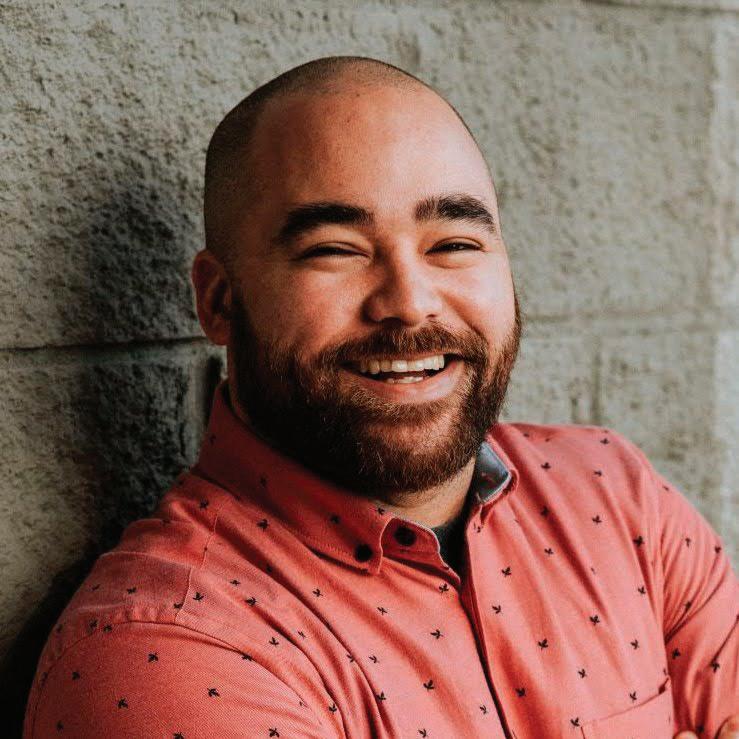
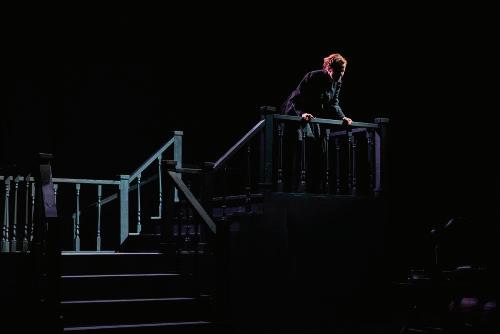
On October 4, 2025, The Turn of The Screw Jeffrey Hatcher’s theatrical adaptation of Henry James’s frightening 1898 novella—was vividly performed at the Oceana PARC Playhouse by the White Rock Players’ Club. The play follows the gothic story of a governess caring for two parentless children at the isolated, eerie Bly Manor in the countryside, wherein a spectral past (the ghosts of the former governess Miss Jessel and the sexually voracious valet Peter Quint) seems to appear in the present and creepily threaten the house’s inhabitants.
In James’s original work, there are 10 characters (dead and alive). In Hatcher’s adaptation, however, there are only eight, five performed by two actors and three left to the audience’s imagination.
Janine Guy played the unnamed governess, while Chris Nash, an alumnus of Trinity Western University’s theatre program, portrayed the child Miles, the housekeeper Mrs. Grose, the children’s nameless uncle and the similarly unnamed narrator.
The playhouse is a relatively small theatre, seating 215 audience members, with about two-thirds of the seats filled this Saturday evening. The stage was dressed with relatively minimal set pieces: a staircase with a landing on top, a chair with a side table and a bench.
Guy was dressed in a black Victorian gown throughout, almost as if she were ready to attend a funeral. Nash wore a Victorian-style waistcoat and tailed jacket. Everything onstage—the set and the costumes—was either black or red, colours often associated with melancholy or depression, automatically creating an eerie atmosphere
It became apparent to the audience within the first few minutes of the production that there would be no costume changes, despite Nash’s rapid transformations into characters of different genders, ages, accents and personalities at the drop of a hat. At first, I surmised that this might distract the audience and undermine the suspension of disbelief, but it did not, thanks to Nash’s exemplary acting. Even though the audience could see no change in his outward appearance, his facial expressions, bodily gestures and mannerisms and shift in voice and tone made it feel as if entirely separate characters had truly stepped on stage.
The audience might also have found distracting the absence of child actors in a production with two children: Miles and Flora. While Nash portrayed Miles—avoiding the controversy of a child acting in a sexualized role—Flora remained an invisible or phantom girl, around whom the other actors mimed. At first, the miming seemed absurd, but as the performance progressed, it came to naturally fit the ghostly, unnerving tone of the play, where reality and fantasy were constantly blurred.
An equally unusual aspect of the performance that threatened to break the fourth wall was Nash’s use of onomatopoeia when speaking stage directions aloud three times: “drip,” “footfall,” “hiss.” For some audience members, this might have shattered the theatrical spell, but for others, it seemed to draw them in as participants in an imaginary story, as it complemented the eerie imaginary child and the one-actor-multiple-roles approach.
Both Guy and Nash delivered captivating performances. Guy’s embodiment of the governess—who shifted swiftly between states of hope, joy, suspicion, fear and finally terror—felt genuine. She gave the character a nuance that, like the novella, leaves the audience unsure of whether she truly saw the ghosts of Jessel and Quint or was slowly entering a state of psychosis caused by isolation and letting her imagination run wild.
Nash effortlessly metamorphosed into each character he portrayed, allowing for seamless transitions between the four characters without a change of costume. His depiction of Miles was particularly chilling, as he assumed the breathy, disinterested voice of a young boy and paired with unnerving lines of dialogue that consistently disturbed both the governess and the audience. The strength of the acting allowed the audience to use their own imaginations, as they do when reading novels, the characters, events and settings that are mentioned but not seen on the stage.
The play uses several literary and theatrical devices to intensify the psychological terror experienced by both the characters and the audience. The absence of the children’s uncle—following the trope of the absent guardian—is repeatedly alluded to throughout the play by multiple characters. At the first mention of his refusal to be contacted by anyone at the manor, it seems like a sad personal choice by an emotionally distant uncle, giving the governess all the more reason to show care and attention to the children.
However, as the ghostly spectres begin to appear, at least in the eyes of the governess, and the children exhibit haunting behaviour, the multiple allusions to the inability to contact him builds tension and raises the stakes for the governess, who is desperate to protect the children from Peter Quint and Miss Jessel.
The use of narrowed spotlights on the governess, as she looks out upon the audience and unnervingly describes the scenes the audience cannot see—such as the ghost of Peter Quint on the tower or Flora nearly drowning in the estate’s
lake—adds to the unsettling atmosphere. The play also conforms to many traditional gothic horror stories of the time period by including the familiar literary figures of ghosts, isolated estates, uncanny children and a woman going mad.
The audience remained quiet throughout the performance, only letting out a few laughs during a lighter scene earlier in the play, in which the governess is interviewed in the city home of the subtly flirtatious uncle.
“As the show only became increasingly mysterious and frightening, the audience was on the edge of their seats, silent as they tried to piece together the meaning of a narrative that obscures the line between what is real and what is imagined.”
The only critique I could offer of the White Rock Players’ Club production of The Turn of the Screw is not about the performance itself, but about the commitment that the audience must make to enter the imaginative space of this type of theatre. In a society accustomed to high-budget sets, special effects and CGI, it might be difficult for some to take on such a multi-layered suspension of disbelief. However, as C.S. Lewis writes in “Bluspels and Flalansferes: A Semantic Nightmare,” “imagination is the organ of meaning.” We need more plays like Hatcher’s The Turn of the Screw to stoke these imaginative embers, which are dimming in the modern era.
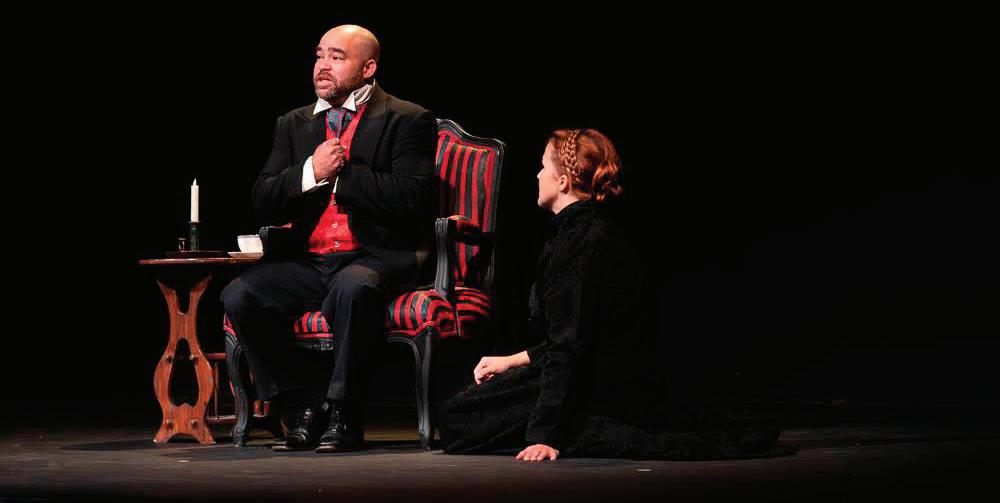



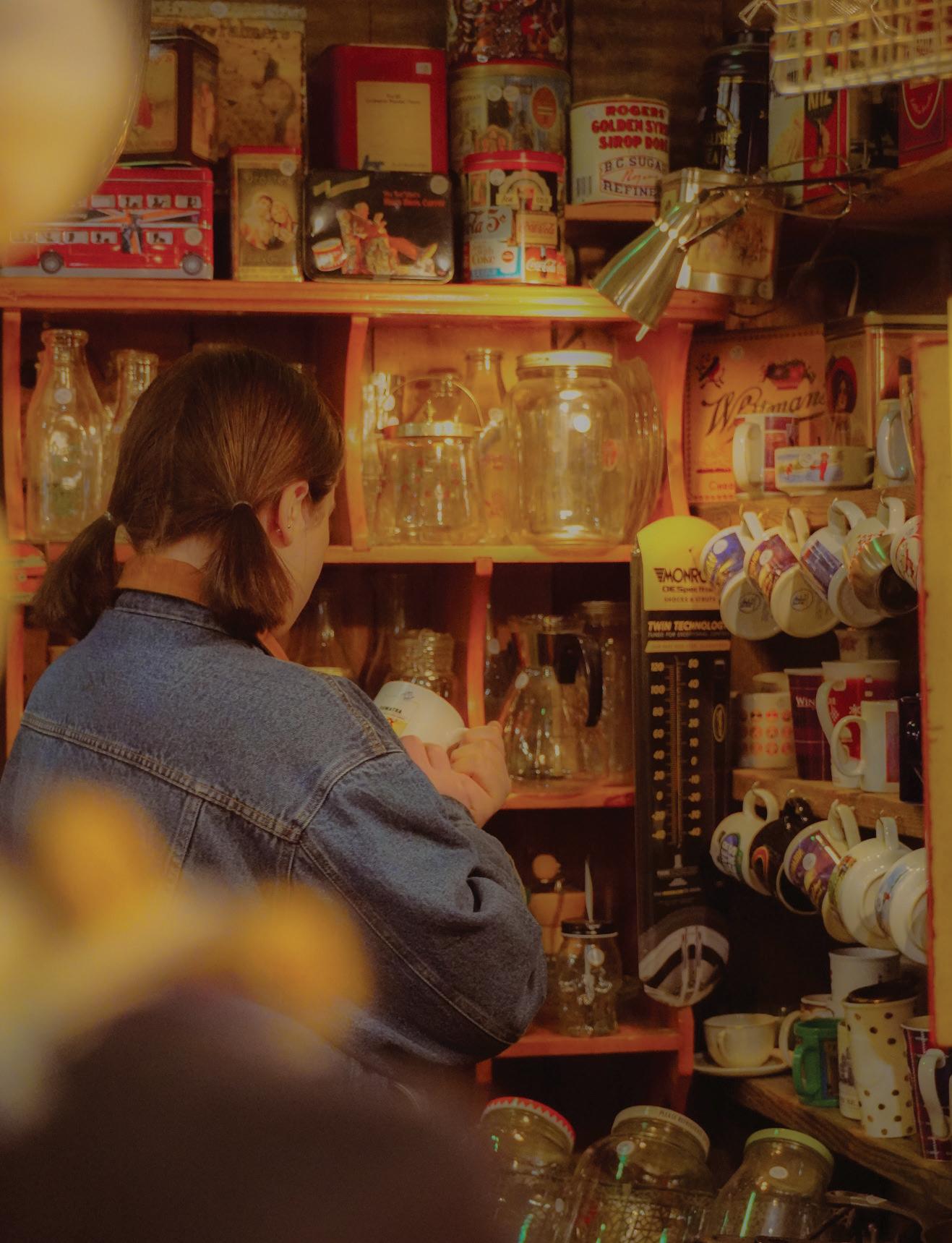
Cath de la Rambelje

Campus feels different now. Halls that once buzzed with conversation feel quieter, and posters curl at the edges, unnoticed. Clubs still meet, events still happen, but the energy has shifted. It is not that people do not care; it is that caring feels heavier these days.
Events and clubs that used to draw crowds now struggle to even get the word out. Putting a poster up on a board among countless others feels like competing with a hundred voices. This is the problem with “promotion fatigue,” when consumers are overwhelmed by constant promotional messages, causing them to become desensitized or disengaged, ultimately reducing their responsiveness to them.
The root problem is not a lack of engagement. There is plenty of that online, with promotions being posted and reposted daily. We hear about these events all the time. In such a social age, it is easy to get a hundred likes on something you share, maybe even a few comments. But how many of these people engaging in this online content actually show up?
The COVID-19 pandemic has had a lasting impact on burnout, habits and compassion fatigue across North American society. More than four years later, we are still feeling it. People became used to isolation and have yet to fully recover and rebuild their social stamina. There is also digital displacement: we see and experience community through screens now. Attending in person feels redundant because everything is already being documented. For many, this fixes the old “fear of missing out” problem.
Today, students are working more jobs, commuting longer distances and are simply overwhelmed. They are over-committed and stuck in survival mode. On top of that, there is a loss of continuity. Traditions rely on older students teaching newer ones, but the pandemic broke that chain. Not enough of us have been working to mend it. Humans should matter to each other. Yet this distance has physically pried us apart. Disconnection feels normal now, but it is harming us.
There is a cost to forgetting. When traditions die, something in us disappears with them. Communities lose their memo-
ry, and without memory, belonging starts to fade. We keep moving, but without remembering where we came from or why it mattered in the first place. Every event or gathering once served as a marker in our shared story. Without them, the thread that ties Trinity Western University together frays a little more, until what was once community becomes just a collection of individuals passing by each other.
Still, there are signs of hope. Every poster someone takes the time to hang, every event that happens despite a small turnout—these things matter. Do that event. Make that poster. Invite people, even if they might not come. Effort, repeated over time, builds momentum.
Memories are not gone, they are being rewritten. What matters is that we keep showing up. Presence rebuilds memory; it is what gives meaning back to the spaces we share.
“Showing up, even imperfectly, is an act of hope. It is care made visible. Faith in each other, in student initiative and in what comes next is how we keep that hope alive for the next generation.”
So why does any of this matter? Why should we care? Because, honestly, we are losing a bit of our humanity. TWU has always been known for its community, for the life that fills its campus. If we let that fade, we lose something that makes this place, and us, distinct. When we show up, when we choose to care, we represent more than just ourselves. We represent the faith and compassion we should stand for. The goal is not to turn everyone into a cheerleader. It is to make this place feel a little less lonely.
You will remember more than just the classes. You will remember the people who made this place feel alive. You might not think it matters now—until one day, it does.
Hamdan Sadiq
Every year, Trinity Western University celebrates the diversity of its student body through events that bring the world to campus. This fall, the TWU Intercultural Programs (ICP) team took that mission to heart by hosting Culture Week, a vibrant showcase of global traditions, music, food and art.
Mars’ Hill spoke with four members of the ICP team to learn what Culture Week means to them and how their efforts help unite the campus community.

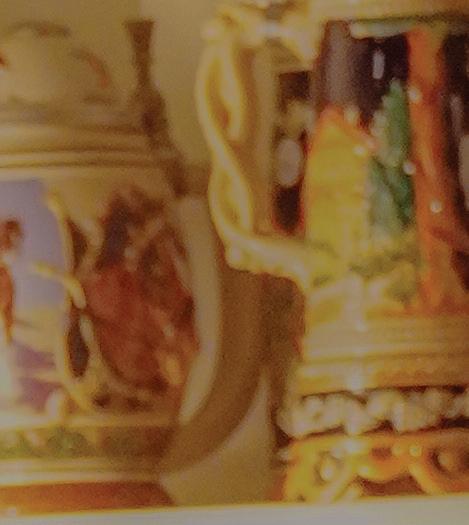
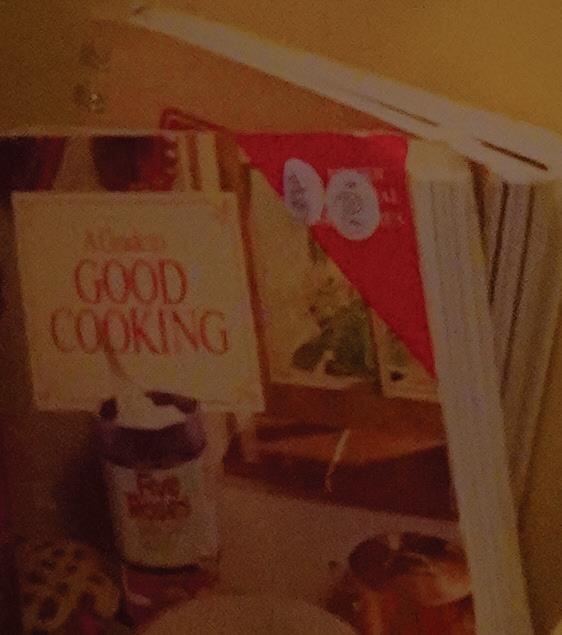
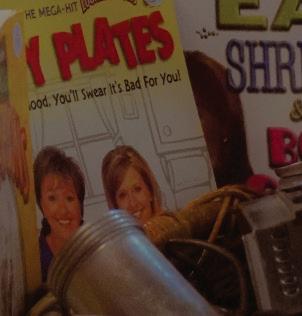
Emma Regis — Community Lounge Events (CLE) Programmer
MH: What is Culture Week?
ER: Culture Week usually happens near the end of October and is a week dedicated to celebrating the diversity at TWU. There are events throughout the week, each offering a chance for students to learn about different cultures and share their own. There’s the Culture Expo, a cultural dinner night, Flag Chapel and other events that take place.
MH: What does culture mean to you?
ER: Culture is what helps shape our worldview, values and who we are as people. Learning about how culture works, and the differences and similarities between them, helps us understand each other better and promote peace.
MH: What was your favourite moment or event from this week?
ER: My favourite moment was the cultural dinner. It was awesome to be able to cook and share my culture with others, while also tasting dishes and learning from other cultures, too.
MH: What is one word that comes to your mind when you think of this past week?
ER: Learning.
Brandon Lozano — Global Connections Club (GCC) Team Lead
MH: What is Culture Week?
BL: Culture Week is an opportunity for students across campus to learn more about different nations, territories and their unique traditions. Each day, from Monday to Friday, we invited both international and local students to celebrate and share their backgrounds—whether through food, games or times of prayer and worship in different languages.
MH: What does culture mean to you?
BL: Culture is a form of identity and pride for a group of people. Even within a single country, there can be hundreds of distinct cultures, and it’s amazing to explore those new worlds!
MH: What was your favourite moment or event from this week?
BL: Culture Chapel was incredible. Not only because my team and I helped organize it, but also because it was a moment to worship God while highlighting different countries. To me, it resembles Jesus’ words to His disciples in Matthew 28:19: “Therefore go and make disciples of all nations.”
MH: What is one word that comes to your mind when you think of this past week?
BL: Richness.
Joanna Chen — GCC Programmer
MH: What is Culture Week?
JC: Culture Week is a time to celebrate different cultures. It’s a week filled with fun events where people from all parts of the world come together to taste dishes, experience cultures, worship in different languages and take part in engaging conversations.
MH: What does culture mean to you?
JC: Culture is a beautiful set of traditions, customs, arts or music from a particular nation or group of people.
MH: What was your favourite moment or event from this week?
JC: My favourite moment from this week of representing culture was during Culture Chapel. Seeing all the waving flags from so many cultures come together in unity for Christ reminded me of how God created the universe—different and unique as His creation.
MH: What is one word that comes to your mind when you think of this past week?
JC: Unity.
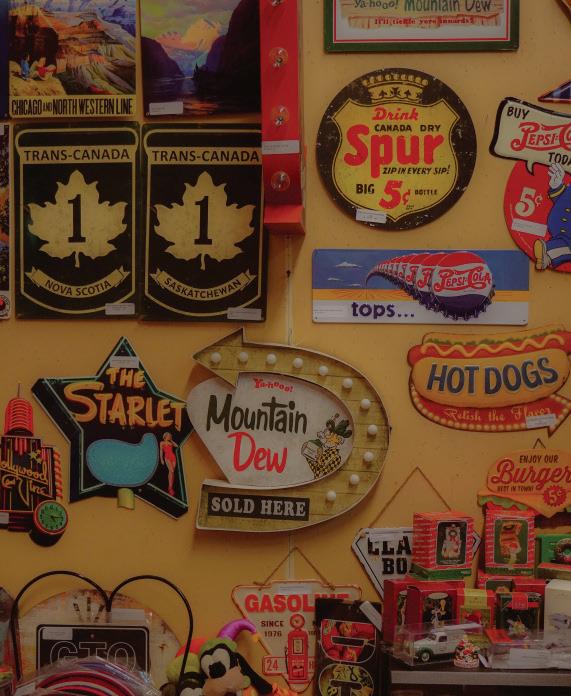

MH: What is Culture Week?
LA: Culture Week is a special week organized in collaboration with student clubs and leaders. The week features a variety of events that celebrate the diverse cultures represented by TWU students and staff. Activities include shared meals exploring different cultural dishes, storytelling sessions and cultural expos where participants can teach others about their heritage. The aim is to create opportunities for the community to share their identities and celebrate the unique ways God has made each person.
MH: What does culture mean to you?
LA: To me, culture is the way people live—including their traditions, food, language and customs. It’s a part of my identity and influences how I interact with others.
MH: What was your favourite moment or event from this week?
LA: I loved the different events that happened during the week. However, one of my favourites was the Flag Chapel. It was so cool to see so much of the TWU community come and pray over the countries.
MH: What is one word that comes to your mind when you think of this past week?
LA: Community.
Sadie McDonald
On Saturday, October 25, 2025, Professor of Human Kinetics and Dean of the School of Human Kinetics & Athletics Dr. Blair Whitmarsh won the by-election for Langley Township Council, with 3,107 out of 5,904 ballots (52 percent) cast in his favour. Candidates running for council in the election included John Aldag, Resha Sabti, Paul Chhina, Val van den Broek, Jami Watson and Saurabh Seth, coming in second to seventh place.
A TWU alumnus of 1988, graduating with a bachelor’s degree in physical education and psychology, Whitmarsh has many fond memories of his time at TWU, from 11:07 and Hootenanny to the Banana Challenge and living in dorms. After his BA, Whitmarsh went on to earn his MA in physical education and sport psychology and PhD in sport psychology from the University of Alberta before returning to TWU in 1996 as a faculty member. In 1998, Whitmarsh became the chair of the Department of Physical Education, and then the dean of the new School of Human Kinetics in 2003. This is not Whitmarsh’s first time on council, as he was a member from 2014 to 2022.
Mars’ Hill had the opportunity to speak with Whitmarsh soon after his by-election win about his campaign and vision for Langley.
As someone who has raised his family and coached soccer in Langley, Whitmarsh’s motivation to run in the by-election was simple. “I enjoy meeting with people and discussing their ideas and plans for the future of our community,” he said. “And so when I first ran in 2014, I was excited to do that, and now again in this by-election to get back on council, I was looking forward to giving back to the community and to continuing to see Langley be a great place to live.”
The role of social media has grown significantly compared to Whitmarsh’s first campaign in 2014. “Social media was important then, but it’s much more important now,” he said. “This is the first by-election in the Township of Langley for a council position in a very long time. In fact, I have not even been able to search back to see when the last time was. So, in by-elections,
you really have to make sure that your supporters get out and vote.”
The ability to connect with the community is also a valuable skill, something that Whitmarsh credits his position as HKIN professor and dean for helping him attain. “My role at TWU is with a school that is fairly outward facing [because] of the external nature of a varsity athletics program, and so, I’m often in the community,” he explained. “I spend a lot of time meeting with people in the community, going to events and engaging with groups like the Greater Langley Chamber of Commerce.”
The three core areas of Whitmarsh’s campaign—fiscal responsibility, balanced growth and community wellbeing—were intentionally selected with the future in mind.
“We are required to balance our budget every year. Of course, we can borrow money for capital projects, [such as] building roads or new recreation centres or parks. There are a lot of new things happening, but all of those things being done at once has cost a lot of money,” said Whitmarsh. “And so the debt in Langley Township has increased significantly since I was last on council. Managing our money is really important, and people in the community are wanting to know how we’re going to pay for these things.”
According to the financial snapshot on Whitmarsh’s campaign website, the Township of Langley’s debt is projected to increase by 268 percent from 2022 to 2025. However, Whitmarsh also believes that a thriving community is not merely the responsibility of one city alone, emphasizing that having great relationships with neighbouring municipalities is essential for success. “Langley City and the Township of Langley have a lot of close neighbours, like Surrey, Abbotsford and Maple Ridge, and we need to work well with those communities to function the best we can in our community,” he said. “We can’t just do our own thing and be our own thing because we’re so closely connected to what happens in the neighbouring municipalities.”
The third core area in his campaign was public safety, in which the community has “fire and police [services], well-lit sidewalks, proper crosswalks, and good multi-use paths that people can use so . . . people can enjoy the community that they live in,” explained Whitmarsh.
Over the next five to 10 years, Whitmarsh hopes to see council focus on ensuring people flourish and do well in their communities, highlighting the value of local jobs, housing affordability and safe transportation. “We’re one of the fastest growing communities in the Lower Mainland. I would like us to be able to keep up with the infrastructure that we need, but I [also] want to see us living in a community where people can flourish,” he summarized.
As a returning member of council, Whitmarsh knows his role has an impact on TWU. He shared with Mars’ Hill: “TWU is a significant part of the Langley Township community. We’re one of the largest employers in the community, and we are the Township of Langley’s only university. I hope that TWU can continue to have an amazing relationship with the township as we move forward.”
During his previous years on council, Whitmarsh played a part in a number of exciting initiatives—ones he acknowledged were decisions made collectively by the council. “We widened the 208 Street overpass over the freeway and made the decision to move forward with the 216th overpass that goes over the freeway,” said Whitmarsh. “University Drive, which comes straight out of TWU, was a road that was built and created when I was on council.”
Furthermore, Whitmarsh pushed to ensure the swimming facility in Aldergrove had pools with proper lanes to host swim clubs, chaired the Community Forest Management Strategy, motioned for council to build a firehall and add the needed fire apparatus at the end of his term. Above all, Whitmarsh is most proud of the fact that when he was on council, they did all these initiatives while keeping debt manageable and having reserves available.
Currently serving on the community council for the Gateway of Hope, a homeless shelter in Langley, Whitmarsh also desires to work with the Langley School Board in the coming year, noting that Langley’s rapid growth has led to the need for new schools and appropriately designed crosswalks and sidewalks around them.
“Community groups are really the heart and soul of our community,” he said. “Without them, our community would look very different, and we would not want the township as a government to take over everything that all these great not-for-profits are doing to benefit our community.”
When reflecting back on his time as a student at TWU, it was also the community that truly made a difference in Whitmarsh’s life. “TWU is such a unique community and a great school, and it’s really the community of people that make it so awesome. I remember having great relationships with my professors, and those relationships extended beyond just the classroom, and that’s one of the reasons I love TWU so much,” he said. “It impacted my life, and probably for me, as a professor, what I enjoy most about being at TWU is working and interacting with the students, developing those connections in their lives.”
Weflecting back on his time as a student at TWU, it was also the community that truly made a difference in Whitmarsh’s life. “TWU is such a unique community and a great school, and it’s really the community of people that make it so awesome. I remember having great relationships with my professors, and those relationships extended beyond just the classroom, and that’s one of the reasons I love TWU so much,” he said. “It impacted my life, and probably for me, as a professor, what I enjoy most about being at TWU is working and interacting with the students, developing
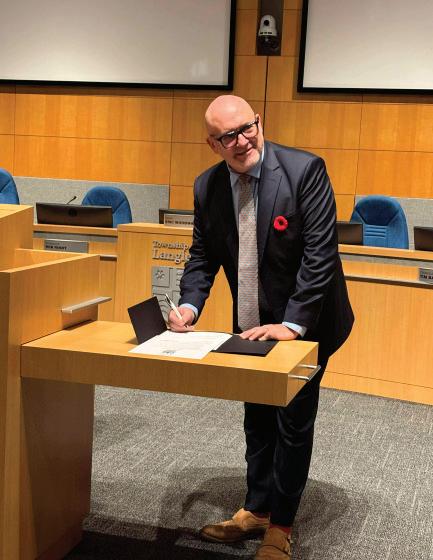
Submitted by Blair Whitmarsh.
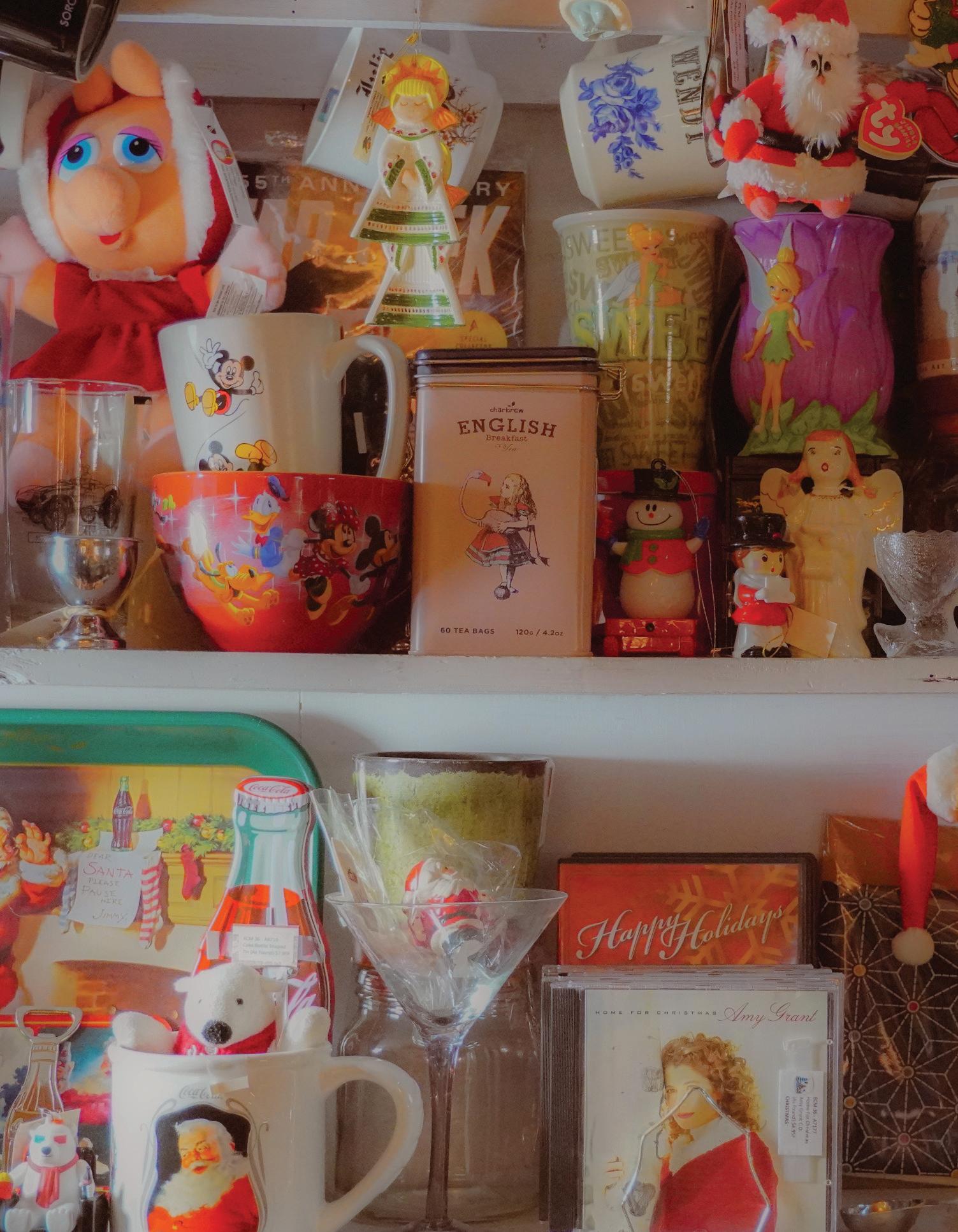
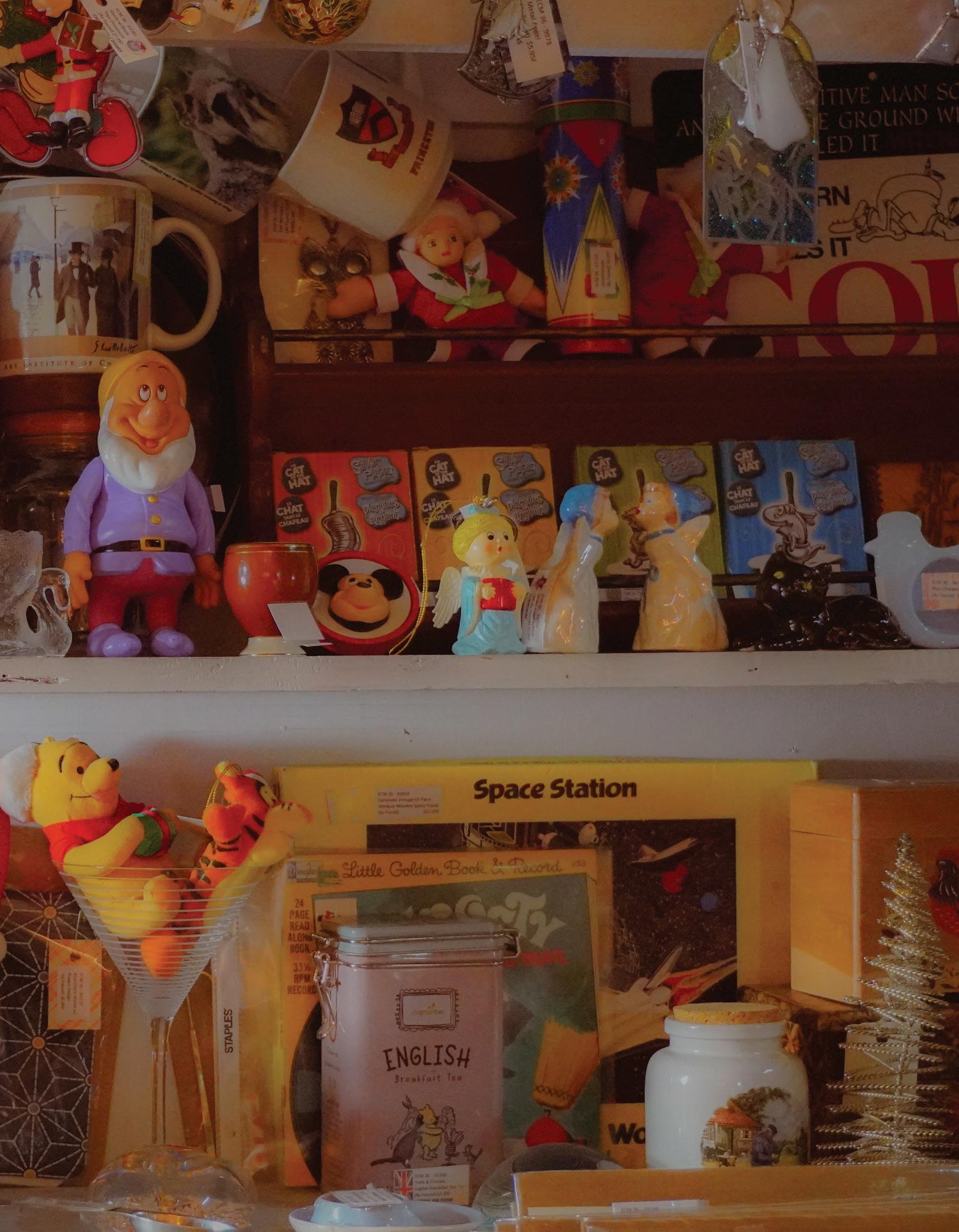
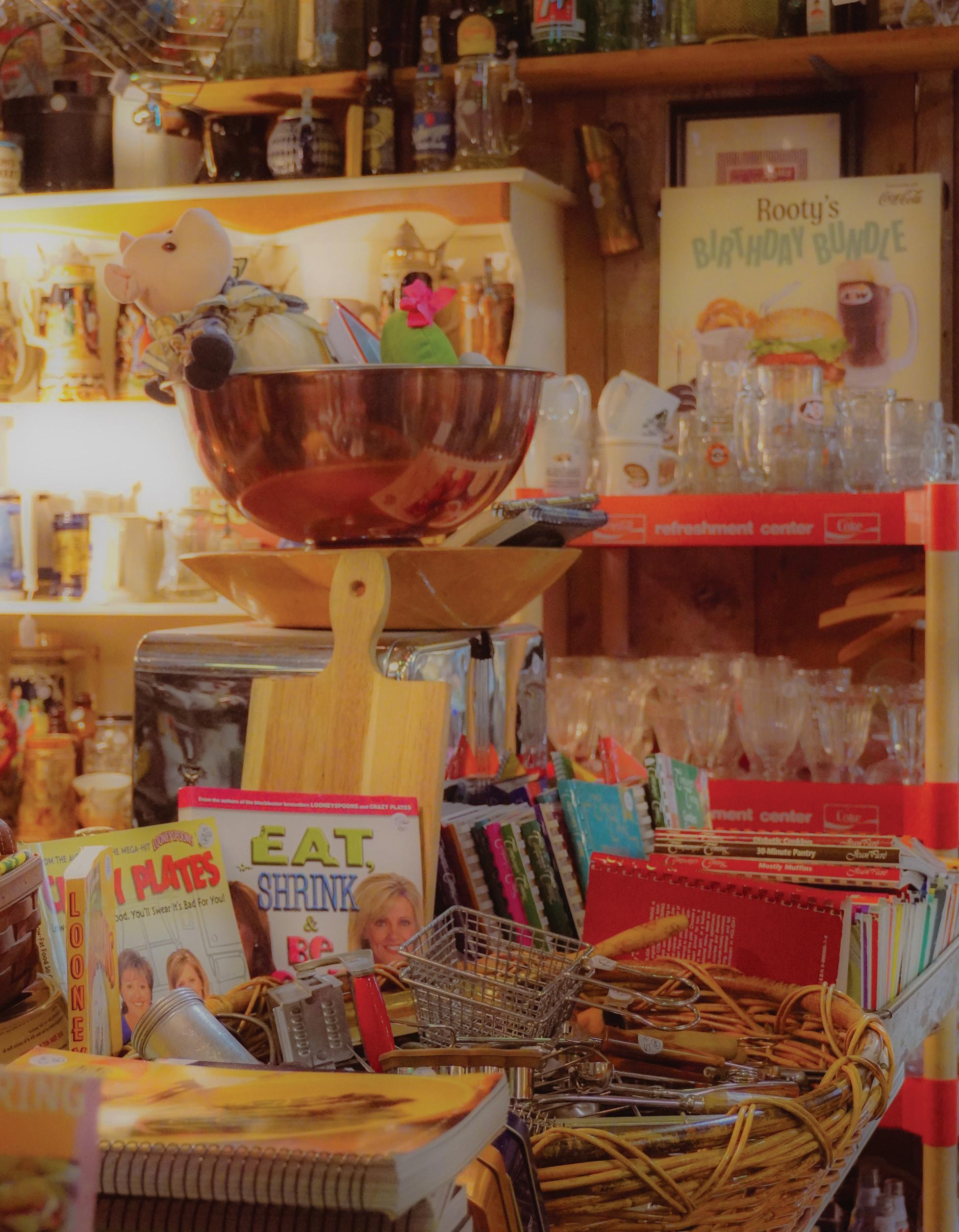
Cristina Pedraza
Performing: A central part of the human experience. Human life is a constant performance; we perform for others and for ourselves. As social beings, there is always a way we want to be perceived. It is a really amazing thing: we often portray the roles we deem the best and most noble. An increasingly popular one seems to be the quiet and ever-pleasing listener.
As the lines between the public and private spheres are blurred through our use of the internet, there is no longer a space to hide from the constant pressures of having to be a performer. Every interaction matters, on or offline, and with the stress that brings, we have progressively become people-pleasers.
Although it is not the most terrible label to have, there no longer seems to be a voice in the room ready to speak, share and create. There is no longer a rebellion, a truly hot take or even a discussion on a controversial topic. The people-pleasing mode has increasingly made interactions between us bland and surface level because we are scared to cause tension in any space.
Disagreeing is no longer viewed as a platform where growth starts; it is seen as a fighting ring where only one opinion can survive. When we allow that to happen, we are not only doing a disservice to ourselves but to others. Hiding what we truly believe because we cannot face questions or even awkwardness feeds into our (already huge) echo chambers where we only listen to the opinions of people who think like us.
This does not mean that all thoughts and opinions must be shared without regard for the audience. But silence is not the only option; it should not be. Personally, I am someone who is stubborn, but even then, the growth I have experienced through difficult conversations is immeasurable.
“I would not be who I am today without the people who have questioned and talked to me because all humans who touch our values and thoughts leave their mark on us, and through the plague of people-pleasing we are slowly losing that.”
The idea of pleasing people might seem like the answer in a world where tensions are high and disagreeing is viewed as definitive divergence. If we flatten ourselves, maybe the mess the world is in will be less noticeable. But as the spheres of our lives intertwine and the performance is never-ending, who are we now when we are alone? What do we value, and why are we no longer talking about it?
This is a call for opinions to be shared once again. Conversations, even on complicated subjects, are not always an arena to please. What we all believe matters. What we value matters. Discussing it with others matters, and if we keep on hiding it, we lose an instrumental piece of humanity: allowing others to shape us with their ideas and views.

Sophie Agbonkhese
I have been thinking a lot lately about what we stand to lose as artificial intelligence (AI) assumes an ever-greater role in our daily lives. Maybe it is the constant announcements in my newsfeed about companies laying off tens of thousands of employees to invest billions in AI, or the increasingly life-like videos that have flooded social media since the launch of OpenAI’s Sora 2, but it is undeniable that AI is worming its way into my thoughts and those of almost everyone I know.
Last week, a reel crossed my Instagram feed portraying an imagined interaction between two characters who had forgotten how to interact without the use of ChatGPT. One was a cashier, the other a customer. Each had ChatGPT open on their phone and consulted it before speaking. The conversation quickly moved from the customer asking where he could find companionship (probably in the bread aisle) to him calling the police because ChatGPT suggested he may be a victim of attempted human trafficking. A quick search on TikTok revealed hundreds of variations of this motif.
While these videos serve their purpose in providing nominal entertainment value and sparking conversations, the scary part is the comments section, where viewers largely seem to agree that this is where we are heading. These past few years, we have become so dependent on AI that we are losing not only the skills necessary to communicate empathetically with others but also the desire to do so.
Personally, I have been saddened to learn that someone I love, when going through several recent difficult periods, was turning to ChatGPT for comfort and perspective. In the past, she and I had been each other’s source of comfort, and I felt as if a profound aspect of our relationship was in danger when she stopped seeing me as someone with whom she could discuss her problems.
Embarrassingly though, I too lack immunity to this trend. When I first became acquainted with the app, I too gave it way too much information about myself in search of the highly tailored advice and guidance
it promised to offer me. I asked it to help me write a sensitively worded email because I feared I lacked the nuanced language to convey both empathy and boundaries at the same time. But you know what the best way to lose a skill is? To never practice it
When we rely on AI to think through our problems, dictate our conversations, conduct our research, write our papers, tell us what to eat for dinner or any of the other myriad tasks we give it each day, we surrender essential elements of what makes us human and if we continue doing this for too long, we may not be able to regain those skills.
“Thinking critically, struggling, innovating, having hard conversations—these are some of the traits that set us apart from other species (and, incidentally, from machines) and allow us to experience the full, brilliant and deep spectrum of what it means to be human.”
Is there a place for AI? Most likely, yes. But I think we need to be incredibly more selective about how and why we are using it in addition to being aware of what it costs us. I leave you with these closing lines of Joseph Fasano’s poem “For a Student Who Used AI to Write a Paper”: “What are you trying / to be free of? / The living? The miraculous / task of it? / Love is for the ones who love the work.”
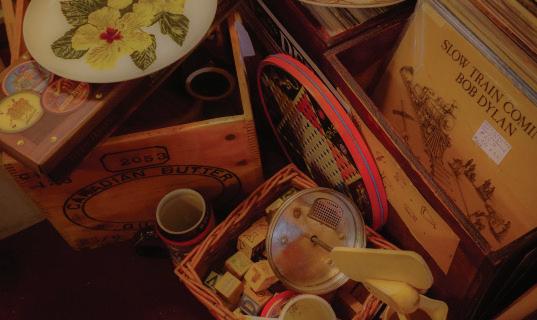





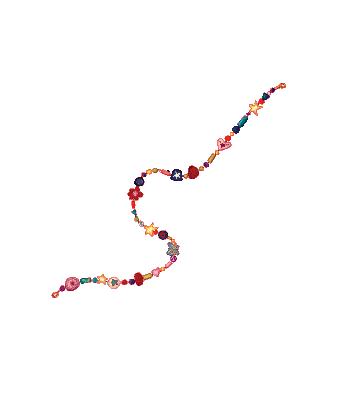

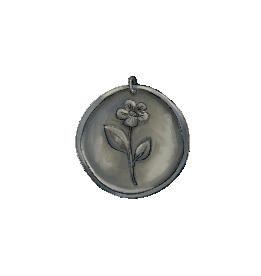



Cristina Pedraza
As a self-identified tiny-object lover, I have always loved the little things that fill our human spaces. The little figurine sitting on a windowsill, the ornate spoon out on display, the small gifted keychain you can always carry around. Trinkets are not only visually enticing objects that make the world more beautiful and entertaining; they create a comfortable environment that envelops you as soon as you enter a space and, most importantly, they reveal what a person is all about. Ultimately, they are as special as the owner themselves.
Knick-knacks have always been treasured by humans; the little boxes, figures and miniature sculptures displayed in many museums around the world make that obvious. And while it could be easy to believe that the transition to an increasingly digital life has changed the love for such keepsakes, it is still strong. There is just no denying that a different feeling comes over you when you find that special something that, in its own little way, showcases a piece of your essence.

A trinket draws you in with its special magic and lets you know that, in fact, that small pen guin figurine needs to have its place in your home, where it must be displayed and treasured (a bit of a personal example).
“So, they remind us to return to intentionality, to look within and ask what we are about, what we love and what we cherish.”


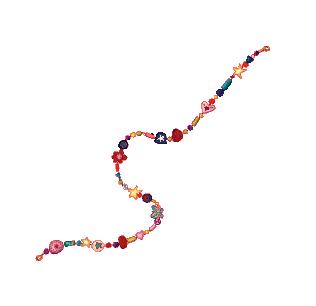




At least the best of them do. When trinkets are sourced from a life well lived and meaning ful experiences from the mundane, they mean so much more.
Trinkets are not only for the owner: they are an invitation for more. For the people who sur round us to see them and ask: Who got it for you? Where did this come from? What made you get it? And thus a tale can ensue that allows the trinket-holder and the curious person to come closer and know the other on a deeper level, where the essence of the person is revealed though the object and its history.


The story within the object is almost always as rich and as beautiful as the object itself. It can showcase one’s current and past passions, one’s attachment to a certain family member or a little trip to the store that ended with a new addition to the home.
Treasuring an object and displaying it with great pride, similarly to what we did as children with our most loved toys, brings all of us closer together and weaves into what we would like others to know about us. So, next time you are out and about, and a little knick-knack catches your eye, know all the possibilities it holds for intentionality and connection.

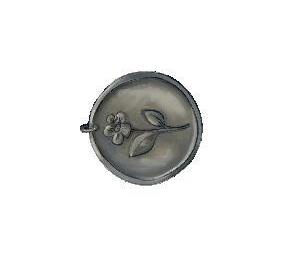



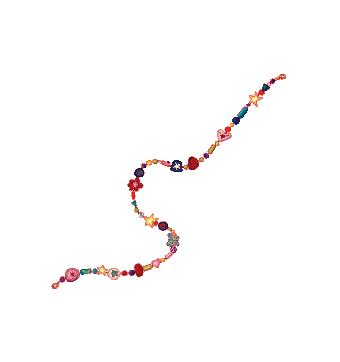

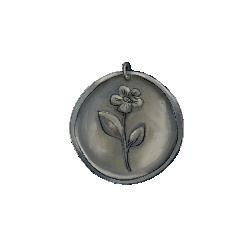
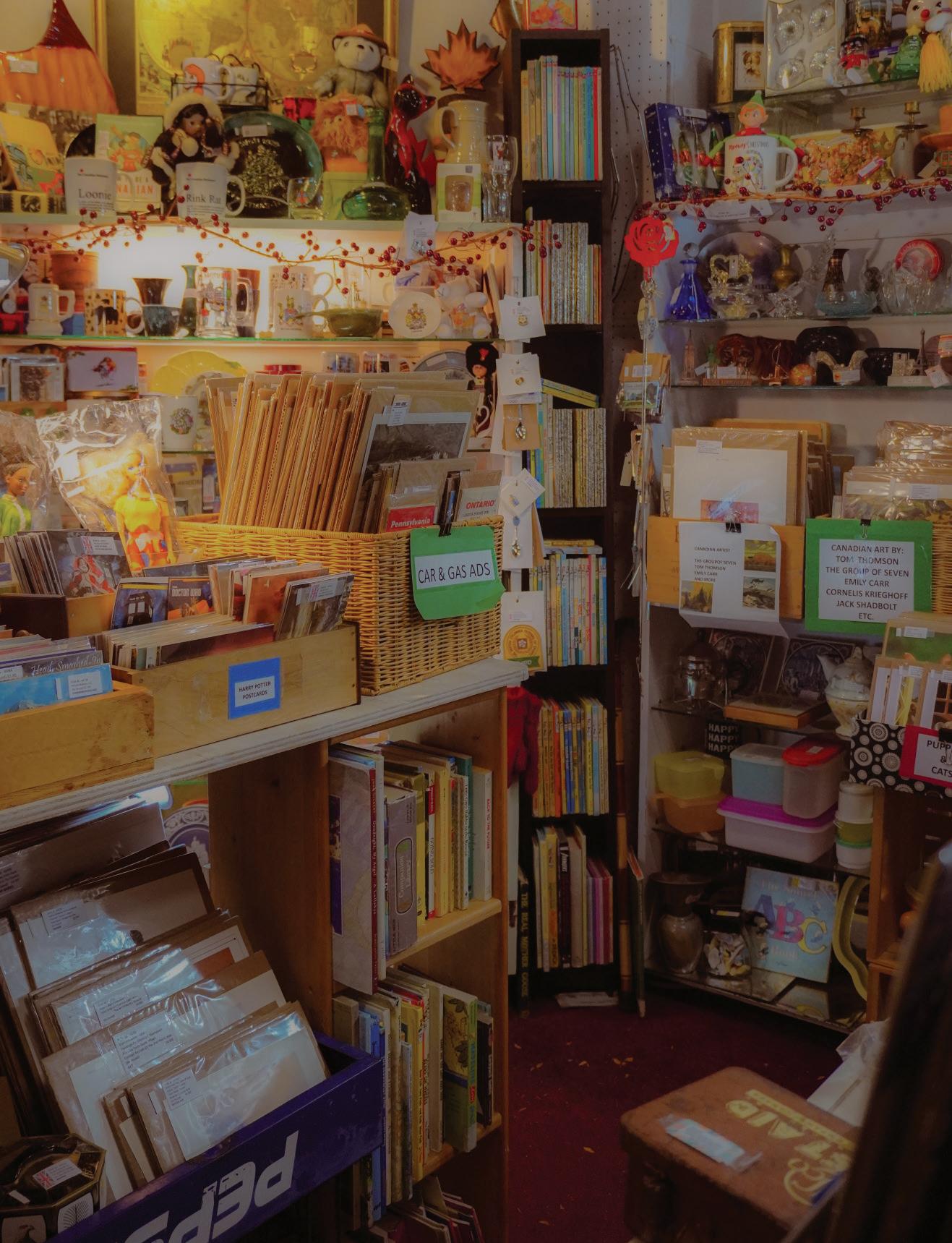
Hamdan Sadiq Chaudhry
MH: What is your year, team, position and major?
JK: I am a third-year business major and a member of both the crosscountry and track and field teams. While there are no formal positions in these sports, my main events are the 1,500-metre run and 3,000-metre run during track season, and the eight-kilometre race during cross country season.
MH: How did you first get involved with cross country and track and field?
JK: I never did track until after I graduated from high school. For most of high school, I stuck with playing soccer. When I graduated, my dad came up with the idea of trying track as a sport. I decided to give it a try and took a gap year to train. I will admit I found distance racing really difficult. I expected it to be hard, but it was far more awful than I could have imagined. Regardless, I went through with it, and I am happy it worked out.
MH: Tell us about your favourite cross country or track and field moment.
JK: One moment really comes to mind. The school hosted a meet in April where I ran a personal best in the 1,500-metre run. It was such a huge milestone for me, and it was even better that my teammates were there and some of my friends came out to watch the race. For track events, the team is usually travelling, so we rarely get home meets. That made it a really great moment.
MH: What are you most looking forward to for next season?
JK: For both my cross country and track seasons, I am hoping to place in medal positions in at least two of my events, either at conference, nationals or both.
MH: What does your time after TWU look like, both for cross country, track and a career?
JK: For my career, I am hoping to get into the business world, probably in marketing. That could change, though, since I have not really decided what I am going to specialize in yet. In terms of my sport, I do not think the chances of going pro are that high, but if the opportunity comes, I would be more than happy to take it.
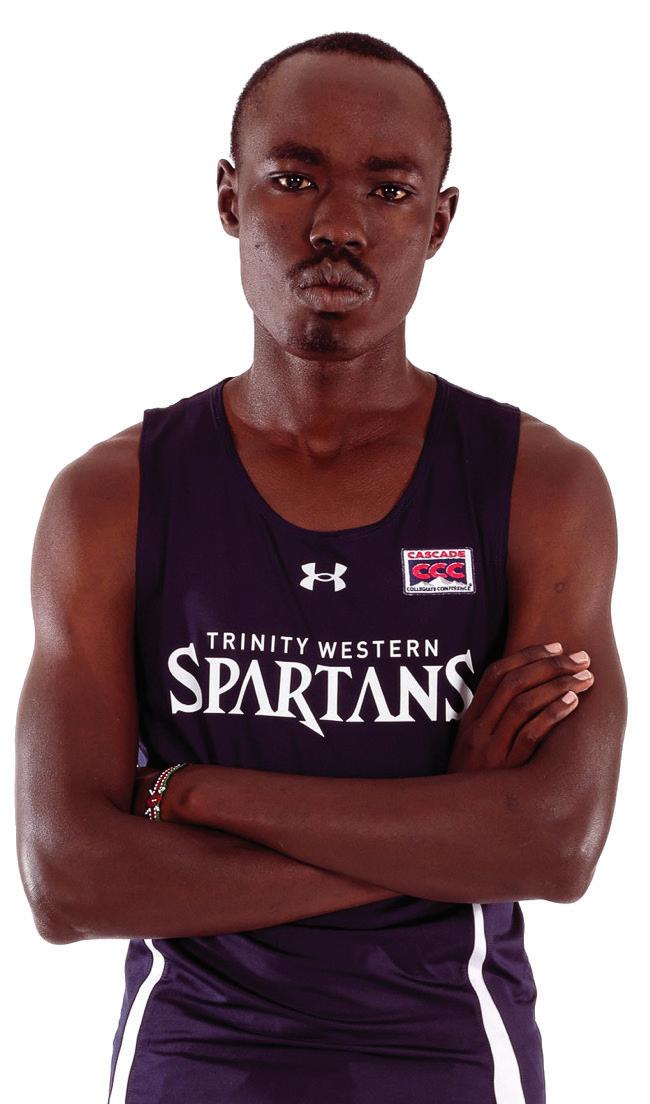
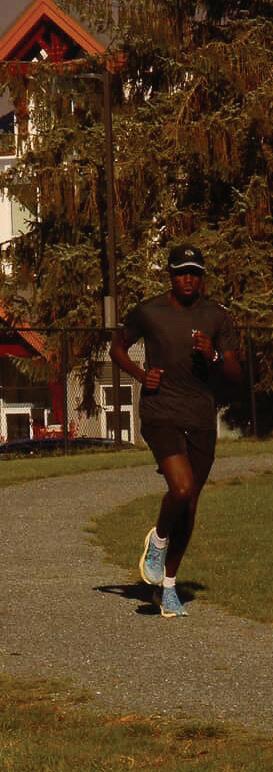



Cath de la Rambelje

Somewhere along the way, every athlete discovers the game that will stick with them for life. For Trinity Western University Spartans, those early moments have grown into years of dedication, community and passion. We asked a few athletes to share how they fell in love with their sport and what led them to play for the Spartans.
Cassidy Buchanan’s love of sports started young. “I grew up eager to try whatever sport was available to me through my school,” she said. In Grade 6, she discovered basketball, and by Grade 8 she was playing on a club team with friends.
“I loved the community I became a part of due to basketball. Playing every day with my friends in middle school really brought me joy, and I just loved the competitive feeling,” Buchanan said.
Her dream of playing at the university level began after her junior coach encouraged her to try out for the B.C. provincial team, a goal she reached, sparking within her a lifelong ambition. “I am so grateful for all the brilliant coaches I have had to help me get to where I am now, as well as the great coaches I am currently blessed with,” she said.











For Artem Hrabovetskyi, sports were part of family life. He began figure skating at three, played soccer at six and picked up hockey at seven. By 13, he had to choose between soccer and hockey—a decision he made quickly.
“I loved the energy and physical side of hockey. It felt more exciting and natural for me,” he said.
After seasons in Europe and the Saskatchewan Junior Hockey League, Hrabovetskyi pursued university hockey in Canada. “The level of university hockey here is high, and being able to study and grow as a person sounded like a great idea,” he said. He eventually landed in “beautiful rainy” B.C. to play for the Spartans.
Joseph Goroza discovered rugby in middle school, but high school is when the sport truly captured him. “I was drawn to the sport through friends and the challenges it presented. Rugby differed from other sports I played,” he said.
“What hooked me was the camaraderie and the intense physical and mental challenge rugby offers. It makes me feel noble, even though the game is full of aggression. Once the last whistle blows, we all come together as friends,” Goroza said.
After a gap year and time at Douglas College, Goroza joined TWU in 2023. He was drawn not only by the competitive rugby program but also by the supportive Spartan community. “The team atmosphere and shared coaching staff make it a perfect place to grow as both an athlete and a man of God,” he said.
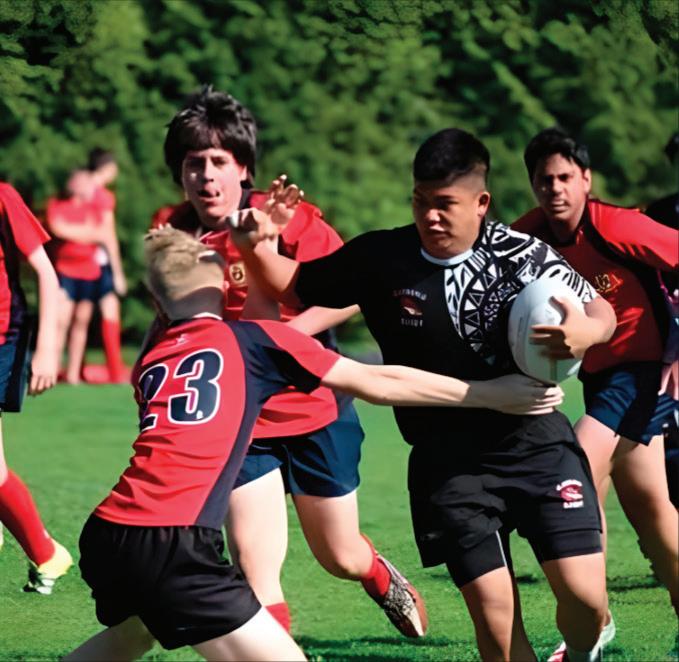
Whether it is basketball, hockey or rugby, the journeys of TWU athletes show that the love of the game often begins in small, formative moments that shape who they are. Those moments stay with them, tucked into memory, long after the whistle blows.
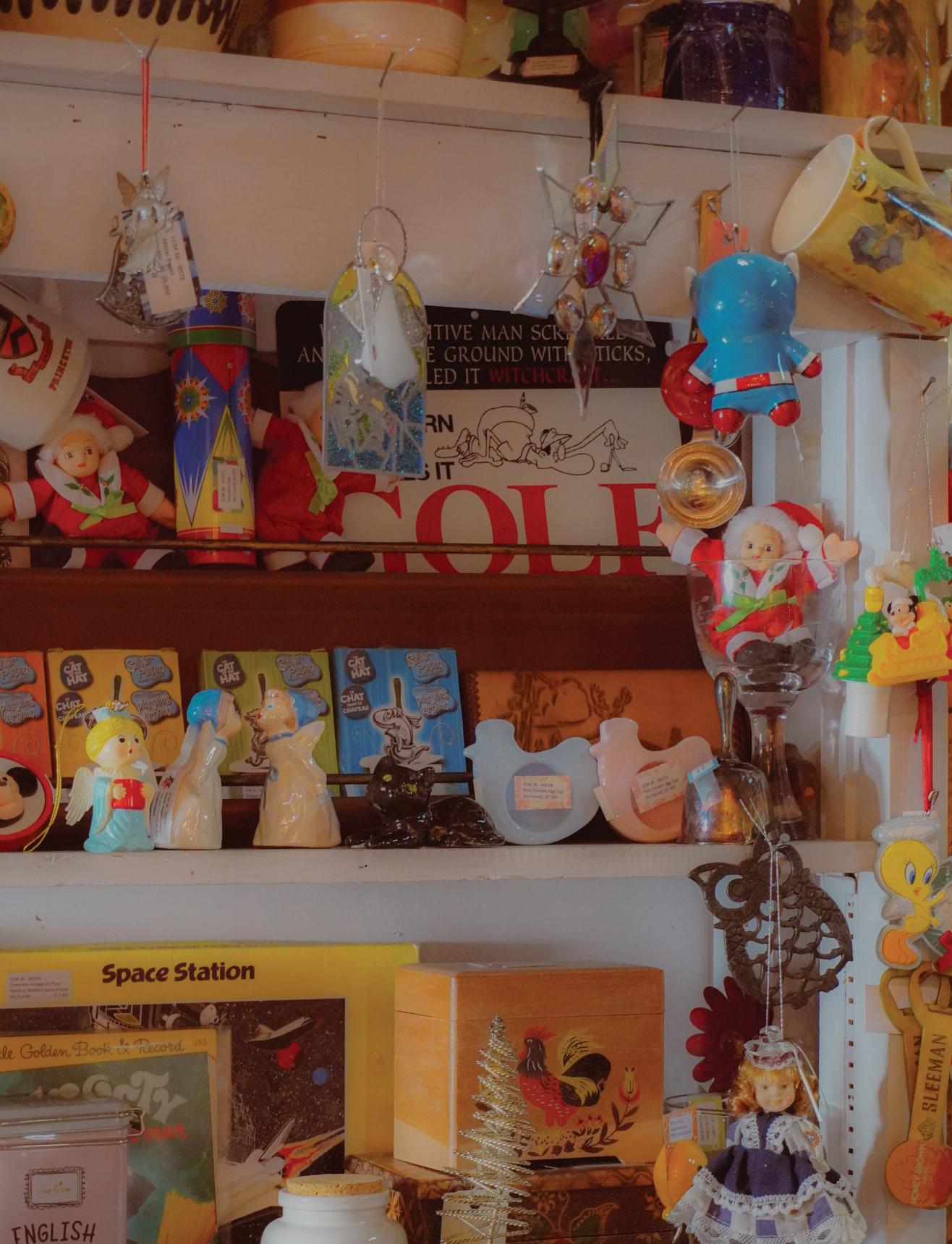
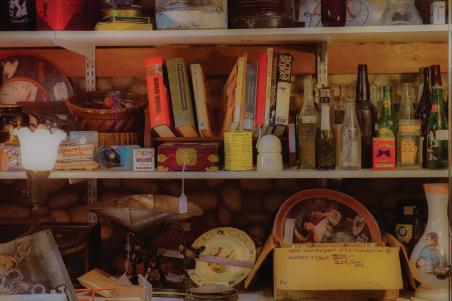
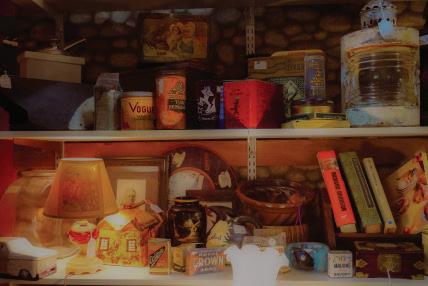
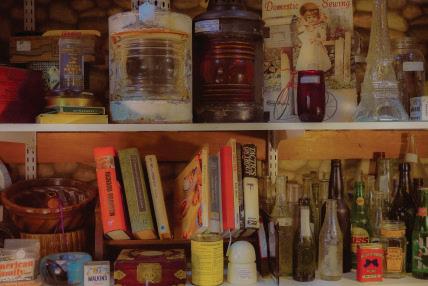
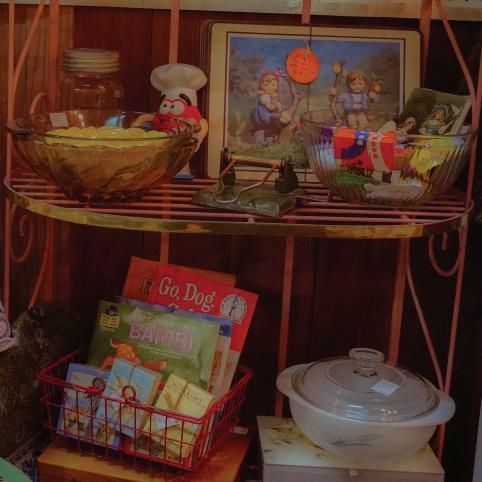
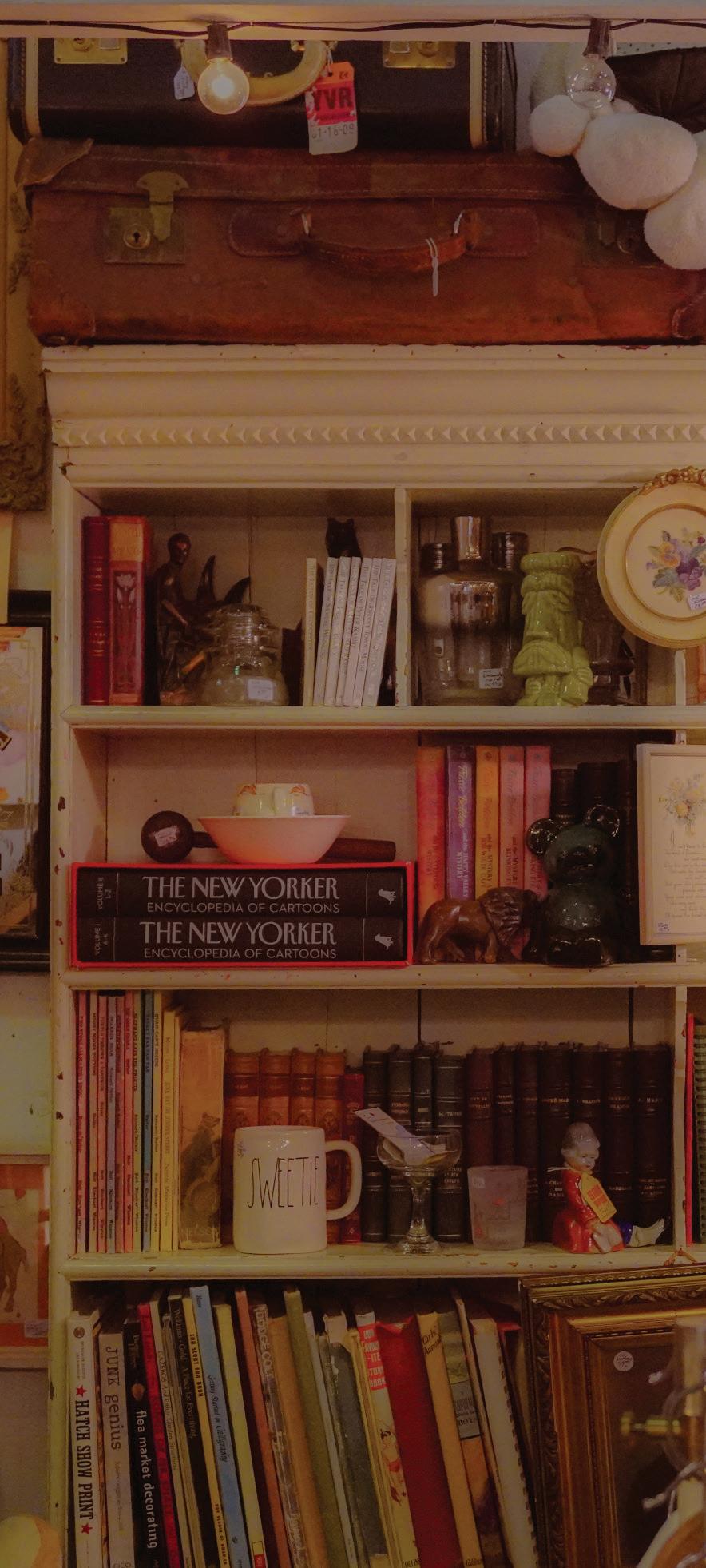
Sophie Agbonkhese
Today I wonder: how could I not have known?
All those days—scaling the boulders below the bluff on Dallas Road as the tide rolled in, Building rafts from driftwood, thinking we could sail away on them,
Not noticing or caring that our jeans were soaked
And we still had to walk home.
Or those in-between moments punctuating the endless weeks on Dad’s gillnetter:
Hours slipping by, book in hand, as we coasted from Prince Rupert, past Ridley Island, Through Inverness Pass to the Skeena River, Where we waited for Chinook and sockeye And played Gin Rummy and took pictures of sunsets.
Or running through Beacon Hill Park, Orienteering in the fall—identifying Garry oaks and Sawara cypress and eucalyptus—and punching tiny holes in our cards, Climbing up to the observatory and the giant chess board and feeling on top of the world, And sledding back down, that one winter it snowed.
How could I not have known That was everything I needed?
Autumn didn’t ask. It just arrived— with a cool breath and calmer skies, like a hand on the shoulder saying, “It’s time.”
The sun softened. The air turned thoughtful. Even the trees— those proud, bursting things— began to undress with a kind of elegance I never quite learned.
They didn’t scream. Didn’t beg summer to stay. They just… let go.
Leaf by leaf. Memory by memory.
And somehow, in the middle of all that loss, they became the most beautiful they’d ever been. I think about that sometimes.
How colors bloom just before the fall. How even pain knows how to pose for a portrait if you give it a frame.
Maybe that’s what moving on looks like— not loud, not certain, not even kind.
Just quieter. Cooler.
Like wind in your hair, instead of fire in your chest.
There’s a strange dignity in things ending slowly. The way a smile can still linger on a face that’s breaking. The way silence can sound like peace if you’re tired enough.
I walked through parks lined in gold and goodbye. And for once, I didn’t try to hold on. Didn’t chase the sun. Didn’t beg the warmth to return.
I just watched the leaves fall and wondered— was this grief? Or relief wearing makeup? Autumn, you didn’t heal me. But you didn’t hurt me either. You just showed me how something can look so beautiful while quietly falling apart.
How even the breaking can carry its own grace. How not all change is cruel. And how sometimes— after the scorch of summer— the most brilliant colors bloom.
Not because the pain is gone, but because I finally stopped running from it.
And sometimes, the most honest version of us is who we become when everything is quietly breaking— but we still choose to fall apart with grace.

There’s a house I keep visiting in dreams. It stands quiet on a fairway of land, carved out of memory where names are stacked neatly on the backbone of books in the library of people who have long since faded.
The walls echo with old laughter, each room holding remnants of the girl I was. The kitchen filled with nostalgia and warmth, the hallway hums with unsaid goodbyes. Now I lay in bed, thinking of the time I was searching for a home, not realizing that it’s something we build within, on a base of memories, standing tall on bricks of wisdom, with windows of love that still let the light in despite the storms.
Still, somewhere in the attic, a small box hides a time capsule of everything I couldn’t let go.
Sometimes I visit that house, and it feels like the traffic light turns yellow turning the night street into a warm glow, the world slowing down, just for a brief moment to honour the memories, the time that built me.
And when I wake, I still feel the dust on my hands, the box kept under my bed, forgotten. A soft reminder that it’s time to say goodbye to the old house.
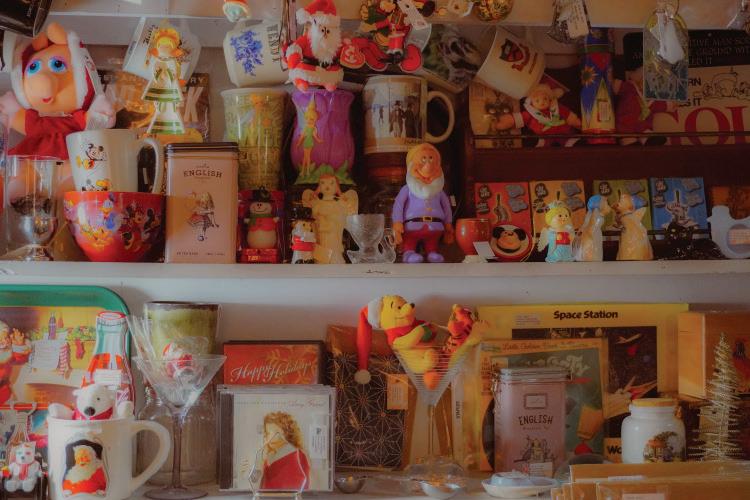
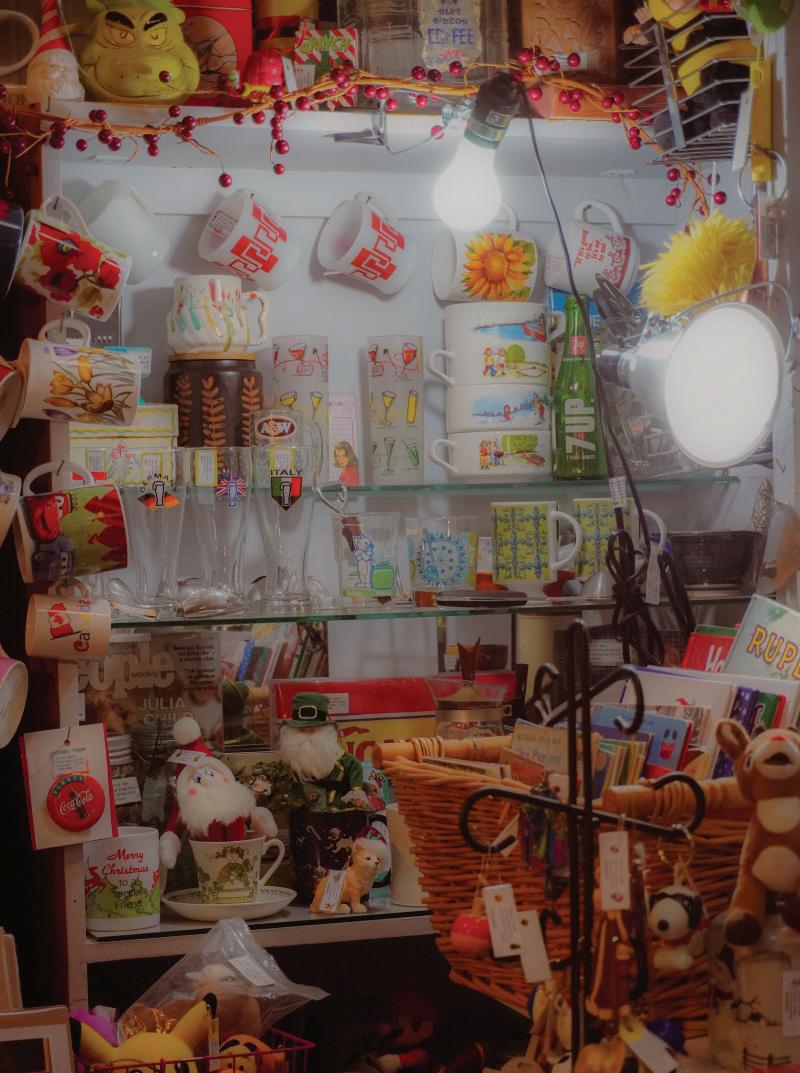
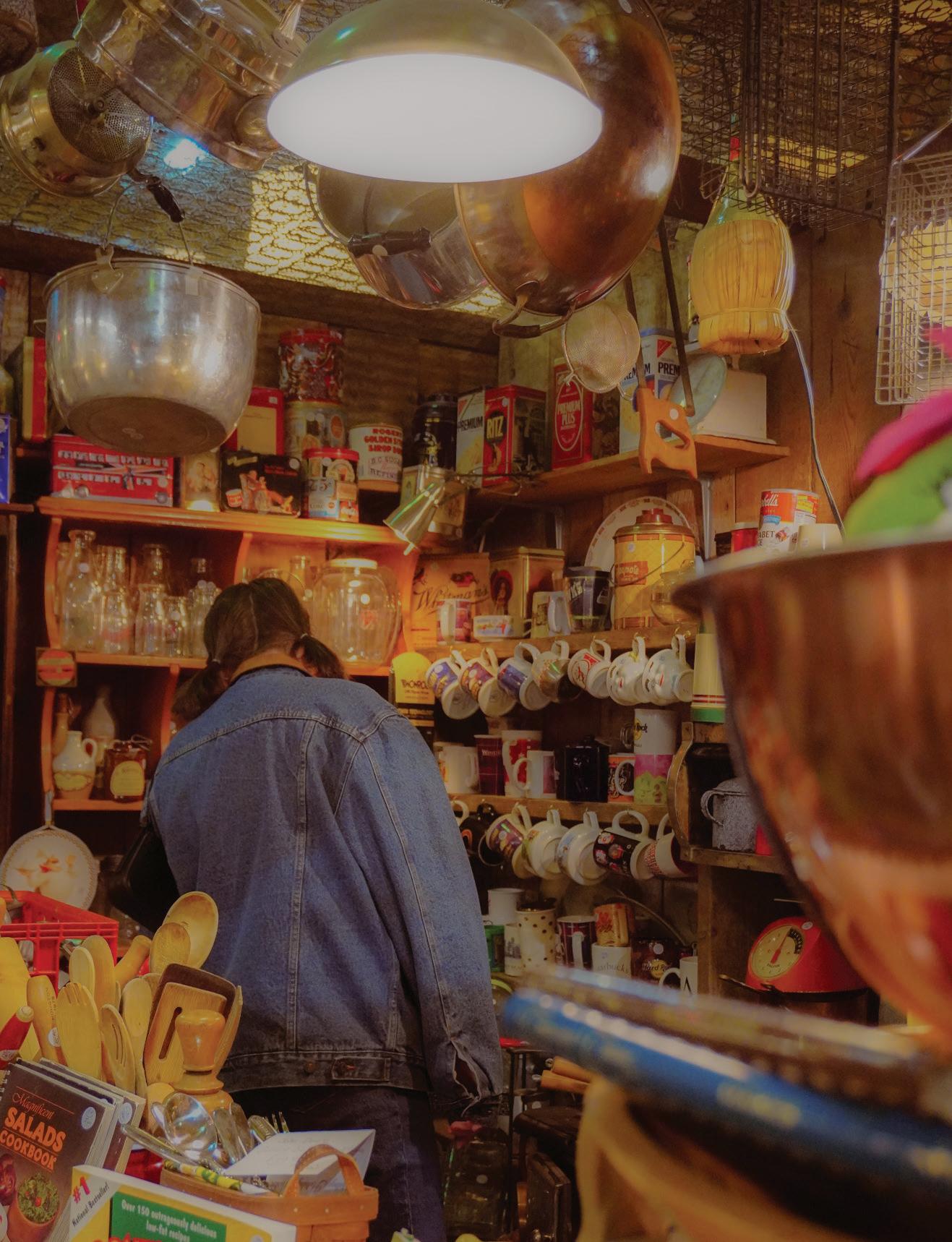
Emma Helgason
It is November, which means campus air now contains 40 percent rain and 60 percent academic pressure. The trees have let go of their leaves. I have let go of my delusions. The theme of this issue is “Memento,” which is Latin for “to remember.” Unfortunately, November is also when my brain submits a petition to forget everything except my student ID number and where the cheapest coffee is.
My room looks like a shrine to the last weeks of class. Exhibit A: a stack of cups with Sharpie messages like “Focus juice,” “Essay potion” and “Don’t drink after 9 p.m. (you did).” Exhibit B: highlighters that died in service to the cause of underlining entire paragraphs. Exhibit C: a crocheted blanket of stress, stitched together from education field placements.
This is the season of mementos, each one a tiny time bomb of memory:
The Post-it Pyramid: yellow, pink and blue, forming a ziggurat on my wall. The top layer says, “Start draft.” The middle one says, “Restart draft.” And the base says, “Apologize to your draft.”
My list of discussion posts to respond to is so long it could be used as a scarf, whispering, “Memento: due dates are not a metaphor. Respond to your classmates.”
I carry a pocket-sized notebook titled “Remember,” which is adorable, because every page just says: buy coffee filters, do not wear the squeaky shoes to the Robert G. Kuhn Centre and email the professor about the extension before you need the extension. Naturally, I remember none of this until 11:58 p.m., when Moodle pings like a microwave from the abyss: Your quiz closes in two minutes. Would you like to sprint spiritually?
People talk about keeping mementos to remember who you are. In late November, I am a creature sustained by Jin ramen and the promise of Christmas lights. My best memento is a wrinkled campus
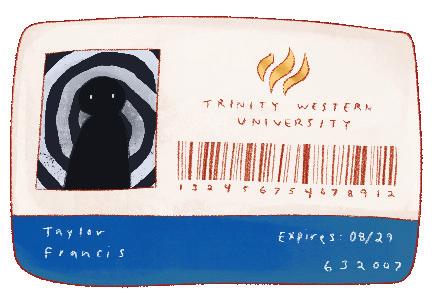
map from orientation that still has a star over “Student Success.” It reminds me that once upon a September, I believed in multi-week plans. Now, I believe in micro-moments: finish the paragraph, send the email, breathe like you are not being graded on it.
Some memories are embodied. My hoodie now smells faintly of the Marlie Snider Collegium and high-stakes group projects. My backpack clings to my back with fraying threads, and my water bottle has become my emotional support. I whisper, “We have got this,” and it says nothing, because it is a water bottle, but I appreciate its nonjudgmental presence.
Here is my working theory: mementos in November are not always about the past; they are breadcrumbs for future you. The Post-it that says “Begin” is less a command and more a door. The library receipt says, “Return me” and “Return to yourself, please.”
“Memento: remember to sleep. Memento: remember to ask for help. Memento: remember you are a person, not a productivity algorithm with hair and a good sense of fashion.”
And when finals arrive and my memories fade, I will hold onto one last relic: the quiet moment after I hit submit, when the rain on campus sounds like applause and the bell tower no longer sounds like an alarm clock.
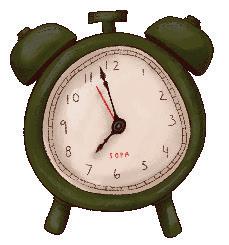
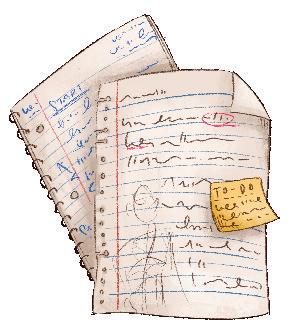
Five Reasons Why I Think We Have One (and What We Should Do About It)
Naomi Jacob
What defines a baddie? When I first came to TWU, I walked around the program booths apprehensively, looking for a good reason to attend, and lo and behold, my eyes were blessed by some of the finest specimens to ever walk this earth. At that moment, it seemed I had my answer.
Now, you might be skeptical—and fair enough. Beauty is in the eye of the beholder. But I think we can all agree that, in the spirit of TWU’s theme this year of finding the beauty in life, it isn’t hard to look around and see beauty walking to class everywhere. This is proof that we have a veritable “baddie epidemic” on our hands—and if you need more information, say less. I’ve got evidence (for both the sexes).
No, I’m not talking about that one art class you have to take—I’m talking about the general clothing style of students on campus. If you ask almost anyone where they got their outfit from, 90 percent of the time you’ll hear, “I thrifted it.” I don’t know where everyone’s amazing fashion sense comes from (perhaps it’s because Fort Langley and all its thrift stores are only 10 minutes away), but it sure does elevate the class that TWU students have—and it’s certainly not hard on the eyes, either. All in all, there’s a general expectation that even if you’re dressing casual, your sweatsuit isn’t going to be last season’s. And don’t even get me started on the people wearing business clothes 24/7—the absolute picture of class.
Ladies, half of you have no idea how beautiful you are, and quite frankly, I have no idea how. It is practically public knowledge that TWU is home to some never-declining face cards. The fact that we are bringing up a powerful generation of beautiful Proverbs 31 and Judges 4 women is something to be proud of. (And some of you genuinely should consider modelling. I’m not kidding.)
When I brought my high school friend to visit TWU, the first thing she said was, “Why do you have Conrads, Stevens, Cams and Jeremiahs everywhere?” (No lie, she actually said this—and she’s 16, so it makes sense). She’s not wrong. TWU has somehow managed to catch every single male lead from a romantic comedy, TV show or book ever written.
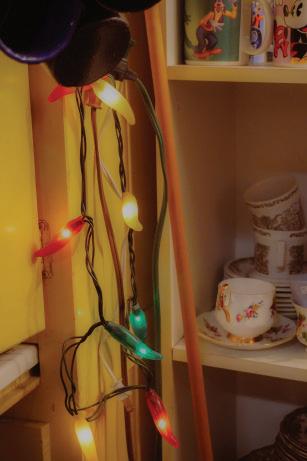
“It’s The Jesus Glow”
In all my one and a half years at TWU, the term “ring by spring” has echoed through the legacy grapevine. And while most of us would vehemently deny the idea that it could ever happen to us, sooner or later we end up imagining ourselves in that situation. We also can’t forget about the “thirsty firstie” mindset—the number of first years I have met who genuinely believe they’ll meet their future spouse within their first week here is astounding.
I could not write this little think piece without highlighting where all that good character comes from. Sometimes I conveniently forget that God creates people, and thinks through how beautiful He’s going to make His children, inside and out. Yes, yes, all of us need improvement in some regard. But with the quality of conversation, the steadfast faith and the strong ambition among TWU students—well, what’s more attractive than that? (I mean, being good with kids is kind of up there. And good cooking.) So, yes, the glow is real. But all of this begs the question:
Nothing. God created this beauty in us so we can love and appreciate each other— and, most importantly, honour Him and His creation. So the next time you run into someone beautiful, maybe drop a smile or even a compliment or two. It might make their day—and besides, it’ll probably be true, too.
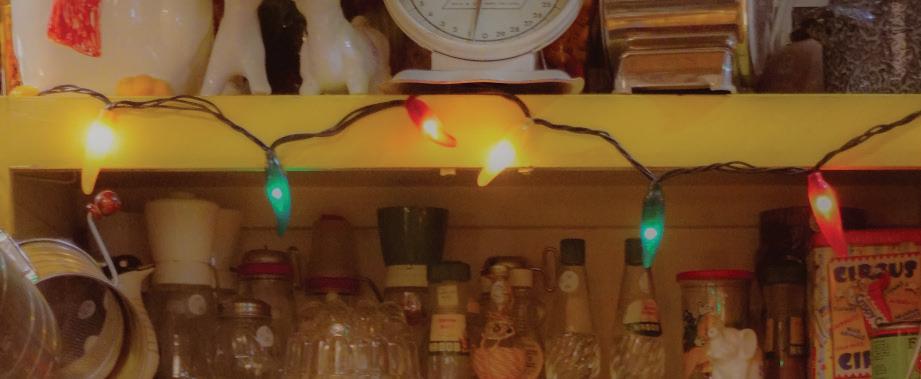

With the help of the lovely Mars’ Hill team, I received a list of questions from the TWU student body asking for some kind of advice. I am Cami Lavender, and this is the beginning of Cami Lavender’s Advice Corner!
Is it still self care if I’m doing it out of spite?
Allow me to share a secret with you. If you are drinking water, exercising, spending time outside and eating well, your body doesn’t care that you’re doing it out of spite. Your organs and blood will still thank you for the effort. Spiteful self care is better than none at all.
That’s not to say your struggle isn’t real or important. But speaking from experience, learning to love yourself is a long and rocky journey. And as you make that climb, you might as well be hydrated!
How do I develop a personality beyond “tired and vaguely artsy”?
Step one: get more sleep. Try eating an orange when you first wake up, it works wonders.
Step two: find joy in learning and discovering new things. As the anthropomorphic pop star from Zootopia once said, “Try everything.” Explore subjects you’ve always been mildly curious about but never had the chance to dive into. Look into something you dislike and try to understand why others might love it. Talk to people who fascinate you, and let their energy seep into you.
You mentioned being vaguely artsy, so specialize! Let your quirks and complexities shine. Create things only you can make.
“Find your private fuel— your own cocktail of caffeine and dreams—and let that power your character.”
My financial plan is to marry rich, but I’m not meeting enough rich people. Tips?
A noble pursuit! Here’s my advice: broaden your view, my friend. If you can’t find someone already swimming in gold coins, your next best bet is raw potential. In other words, find someone who will become rich.
So grab a notebook and your best pen, you’ve got research to do! Get to know people. Learn what makes them tick, what drives them and even what traumas have shaped them. Have meaningful conversations. Figure out whether they have the ambition and grit to make it big and become rich.
Then, once you’ve found your future mogul, stick to them like glue. Support them, encourage them and cheer them on until they’re financially stable enough to fund the lifestyle of your dreams.
Thank you so much to the mysterious strangers who submitted these questions, and thank you for reading! If there is something you would like to see in the next issue, send your questions to me using the QR code below.

Mars’ Hill Is Hiring!
Are you an artistically-or creatively-minded person? Do you want a place to work on your design skills? Mars’ Hill wants you!
We’re still searching for . . . Visual Editor Humour Editor Sports Editor
Email marshill@gmail.com for more information or apply using the QR code below! We’d love to have you.

Is there a story you’ve been wanting to tell? Are you looking for an opportunity to share your writing with a larger audience? Send your pitches or articles to us by emailing marshill@gmail.com.

22500 University Drive, Langley Twp, British Columbia, Canada
V2Y 1Y1 marshill@gmail.com marshillmagazine.com/ IG: @marshillmagazine X: @marshillnews